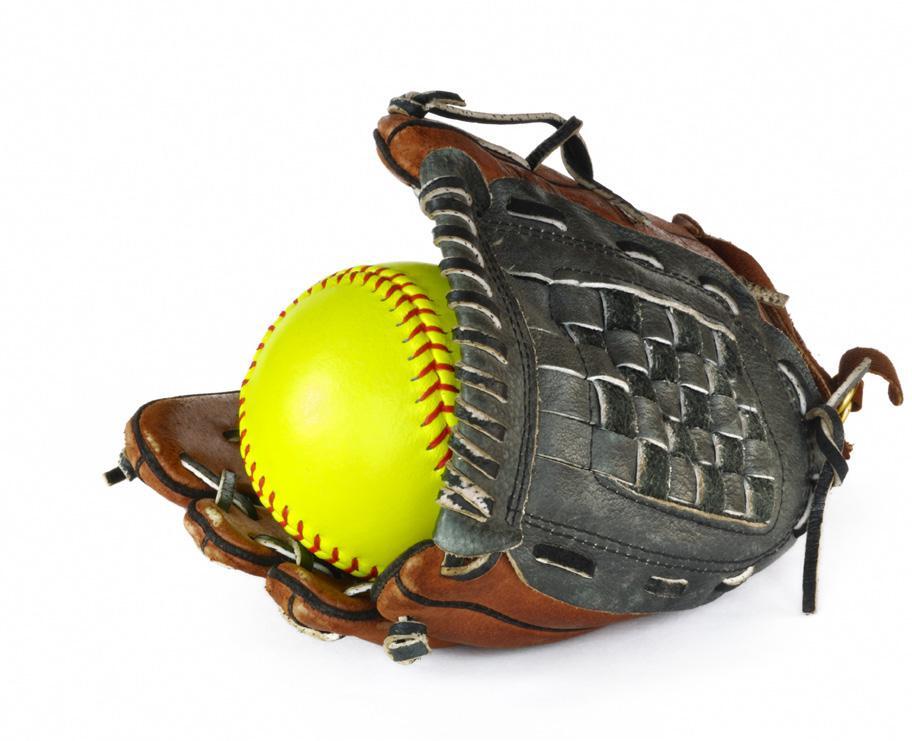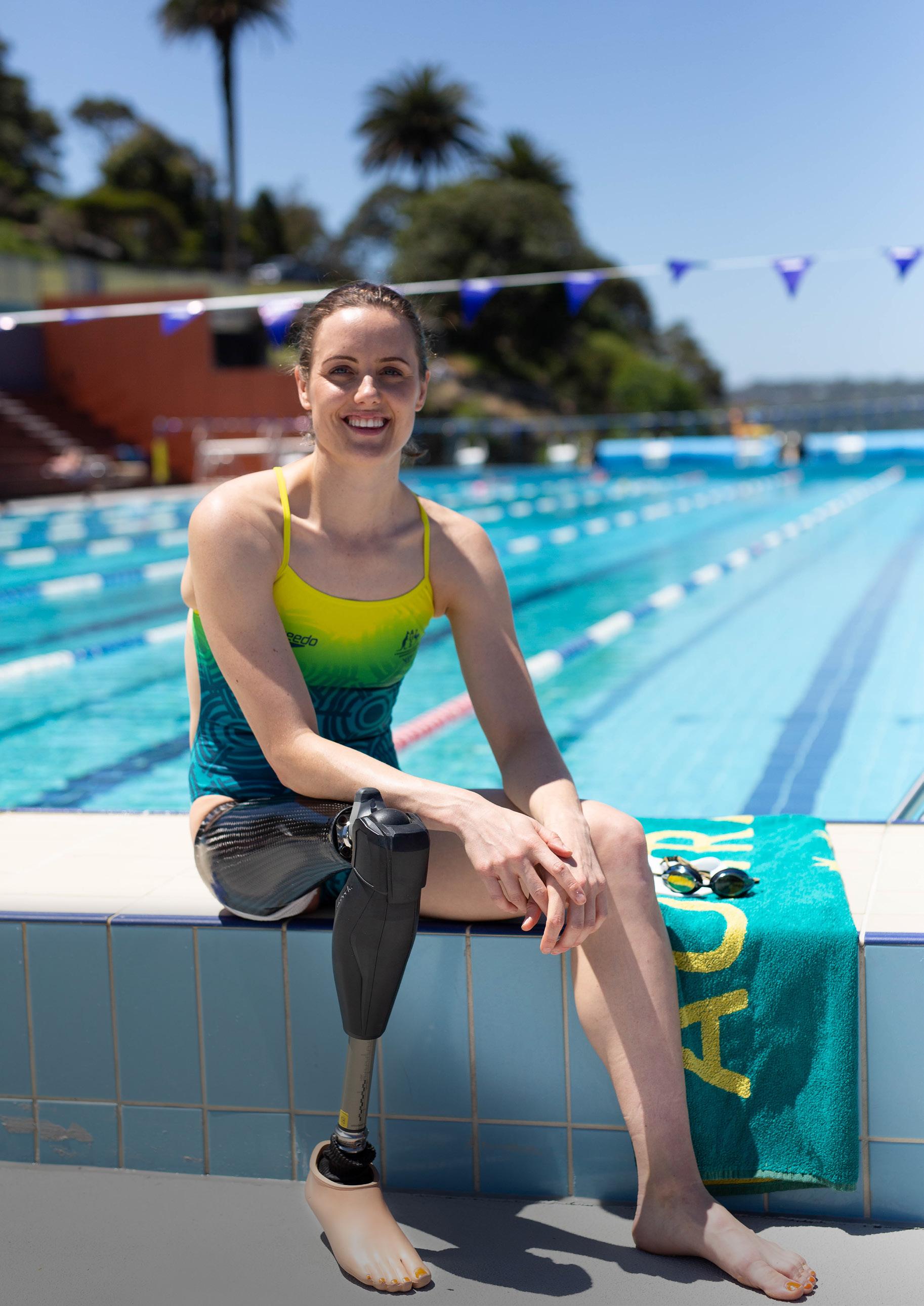
RACISM IN SPORT – WE'VE ALL GOT SKIN IN THIS GAME
WOMEN AND GIRLS IN SPORT INITIATIVE
MINOR DOPING: MASSIVE IMPACT
ILLICIT DRUGS IN SPORT


RACISM IN SPORT – WE'VE ALL GOT SKIN IN THIS GAME
WOMEN AND GIRLS IN SPORT INITIATIVE
MINOR DOPING: MASSIVE IMPACT
ILLICIT DRUGS IN SPORT
ISSUE 16 | MARCH 2024
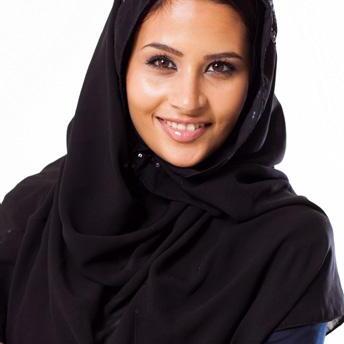

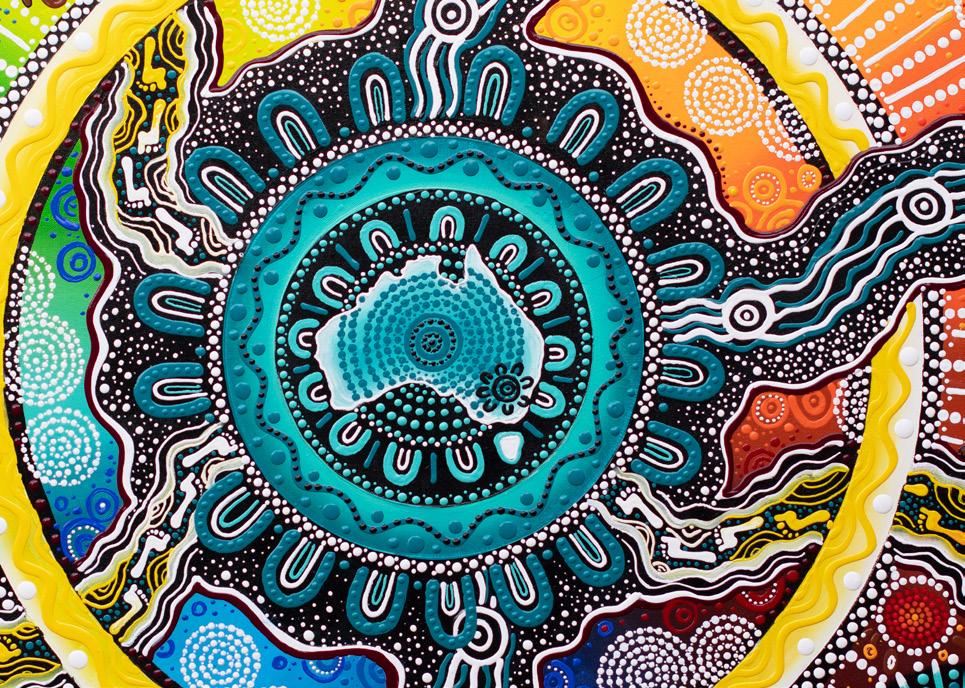
Chern’ee Sutton is a contemporary Indigenous artist from the Kalkadoon people. This painting is her interpretation of Sport Integrity Australia and our reconciliation journey. The large community symbol pictured represents Sport Integrity Australia. Within this community symbol is Australia, which represents a single nationally coordinated organisation to address all sport integrity issues. Canberra, where our office is located, is represented by the small community symbol within Australia.
See the whole artwork and read the full story on our website.
Do you have a story about an integrity issue that you want to share with the sports community through future issues of Sport Integrity Matters?
Send an email to communications@sportintegrity.gov.au All feedback is appreciated.
© Commonwealth of Australia as represented by Sport Integrity Australia 2024
PERMITTED USES: This publication is not for general distribution. You may download, display, print and reproduce the whole or part of this publication in unaltered form for your personal use or, if you are part of an organisation, for internal use within the organisation to perform your duties or functions of your role. You or the organisation must not use the reproduction for any commercial purpose and retain this copyright notice and all disclaimer notices as part of that reproduction. This publication is copyright. Apart from uses permitted by the Copyright Act 1968 and this copyright notice, all other rights (including all commercial rights) are expressly reserved.
DISCLAIMER: The content of this publication is provided for information purposes only. The contents do not constitute legal advice and should not be used as such. Formal legal advice should be sought on particular matters. While the information contained in this publication has been formulated with all due care, the Commonwealth or its partners do not accept any liability to any person for the information (or the use of such information) which is provided in this publication or incorporated into it by reference. This publication contains links to external websites that the Commonwealth has no direct control over. It is the responsibility of users to make their own decisions about the accuracy, currency, reliability and completeness of information contained on linked websites. Links to external websites do not necessarily constitute an endorsement or a recommendation of any material on those websites or any third party products or services offered by, from, or through those websites. For further information please contact communications@sportintegrity.gov.au.
In her keynote address to the Women in Sport Congress last year, the Minister for Sport Anika Wells pointed out that, in 2023, only 22% of CEOs across 65 National Sporting Organisations were women. Minister Wells also highlighted that only 25% of board chairs across 65 National Sporting Organisations were women.
These figures are even lower this year given the departures at the CEO level over the past 12 months, with eight women leaving their roles (we have also seen 11 male CEOs leave their roles during this time). All of this with the Paris Olympics and Paralympics closing in.
These statistics provide a stark reminder that much more needs to be done to promote and support women in senior leadership roles in Australian sport.
These figures highlight a sad reality in Australia and show that we are lagging behind the rest of the world.
This lag is even more evident when you consider the influence and recognition Australian women have on the global sporting stage, especially when it comes to anti-doping and governance.
We have a number of representatives on World Anti-Doping Agency groups/committees including Minister Wells (Executive Committee), Venetia Bennett (Executive Committee as an independent member), Diane Smith-Gander (Nominations Committee), Dr Susan White (chair of the Therapeutic Use Exemption Expert Advisory Group), our Chief Finance Officer Rebecca Tyler (Finance and Administration Committee), Paralympian Ella Sabljak (Athlete Council), our Director of Education Alexis Cooper (Education Committee), and Dr Catherine Ordway (chair of the Social Science Research Expert Advisory Group), while our Deputy CEO Dr Sarah Benson is on the board of the Institute of National Anti-Doping Organisations representing Oceania.
And that is just a small sample when it comes to women representing Australia in the leadership of the World Anti-Doping Agency.
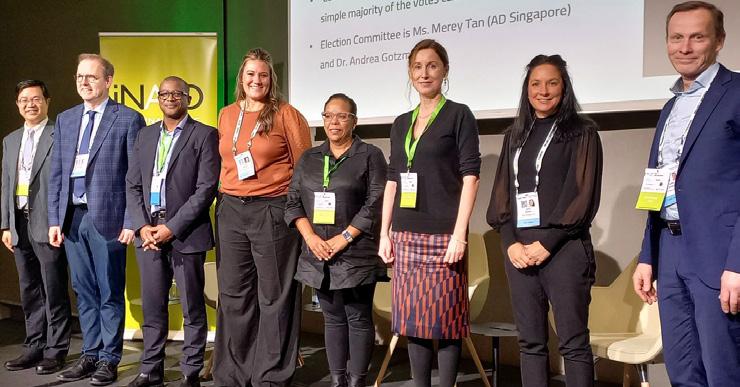
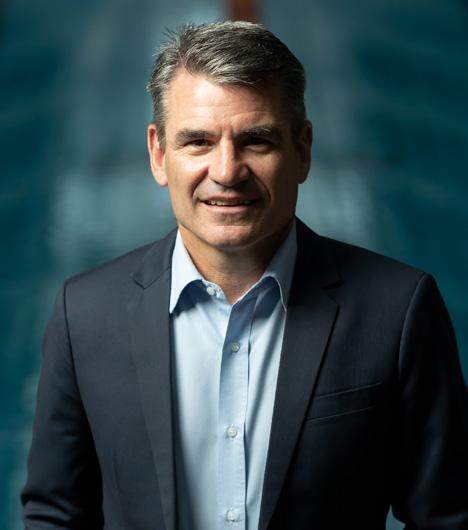
While there is an obvious imbalance within Australian sport, internationally there is a far greater desire to empower and promote Australian women into leadership positions in sport.
The chair of Sport Integrity Australia’s Advisory Council, Sarah Kenny, is also the vice president of World Sailing, Jessica Fox is on the IOC Athletes’ Commission, sports lawyer and our Human Rights Advisor, Nikki Dryden, is a board member of the Centre for Sport and Human Rights … the list goes on.
Moya Dodd, who was on the FIFA Committee, was seen as a trailblazer in promoting equality in football and the results show in Australia’s recent performance in the Women’s World Cup.
It would appear the world has recognised the ability of Australia’s female sporting leaders, yet at the same time Australia is struggling to promote and support women in leadership positions within our sporting ecosystem.
The standing of woman’s sport in Australia has been elevated rapidly when it comes to most professional sports, with some ensuring pay equity and negotiating significant broadcasting rights.
Australian sport’s leaders are playing a key role in promoting a number of important messages to the wider community beyond the playing field. On issues such as the promotion of a healthy lifestyle, ethical decision making and inclusion and diversity, sport is leading the way.
Having a gender balance provides a greater diversity of skills, opinions and improved governance through this diversity of ideas. So why is it that Australian sport does not place the same importance on promoting and supporting women in senior leadership positions at CEO level and on boards in Australian sport?
It’s time for a reality check. It’s a significant problem in sport in Australia and one we all must take immediate responsibility for correcting.
Together we can do better. Together we must do better.
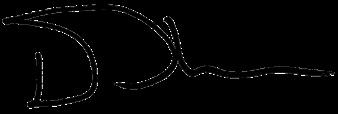 David Sharpe APM OAM Chief Executive Officer
David Sharpe APM OAM Chief Executive Officer
At first glance it would seem that sport in Australia provides a unified sense of community with Aussies cheering on our cross-cultural representation, where respect and teamwork creates an inclusive environment of camaraderie that rises above intolerance and exclusion. Where millions of Australians turn on their TVs or clamour to buy tickets to cheer on Aussie athletes no matter who they are, where they come from, the colour of their skin or whether they are indigenous to this country or originate from elsewhere.
However, it has become clear that racism not only exists in Australian sport but it does at all levels − from juniors through to elite − from participants through to match officials, volunteers, fans, coaches and beyond.
It’s almost a daily occurrence to see our professional leagues highlighted in the press with racism at the fore, whether it be player to player, abuse from the crowd, online abuse or a general culture of disrespect within clubs.
In 2021, AFL player Eddie Betts spoke out for the first time about racist comments made by an opposing player (and former teammate). He told The Age newspaper: “Racism does exist in Australia, and over the past 10 years of playing AFL footy, I have been racially abused every single year. It happened last week. It happened the week before that and the week before that.”
He urged more people to make a stand.
“People shy away from it, from knowing Australia is a racist country. No matter who you are or what you do, when it comes to racism, everyone should be held accountable. I don’t care if you’re a CEO of a company or a janitor of a toilet.”
Professional tennis player Priscilla Hon, who is currently ranked just outside the world’s top 150, has experienced racism on her social media for years. In fact, “I can’t remember when I wasn’t racially abused, maybe 9−10 years ago when I was in juniors”.
As her shocking social media messages show (see pg 9), Hon is hounded win or lose. She said it happens so often, she’s “almost oblivious to it”.
“They [the comments] used to hurt much more at the start,” said Hon, who believed most of her abuse came from online gamblers. “Why else would they care? Sometimes I get them even when I’m not playing. They don’t have much weight to them now because I’m just used to it, it happens all the time and it doesn’t matter if I win or lose.
“It’s like you can’t really win either way.”
Her friend and former tennis player, Alison Bai, agreed.
“I think I was oblivious to it because I thought it was normal at the time,” Bai said. “It was more difficult when you lost because you are already going through all those emotions
No matter what your role is, you shouldn’t feel like someone’s going to yell at you or abuse you, whether you’re playing, you’re spectating or you’re refereeing ... if you see something bad and you’re not OK with it, call it out ...
Delfina Shakespear national & state-level football match official
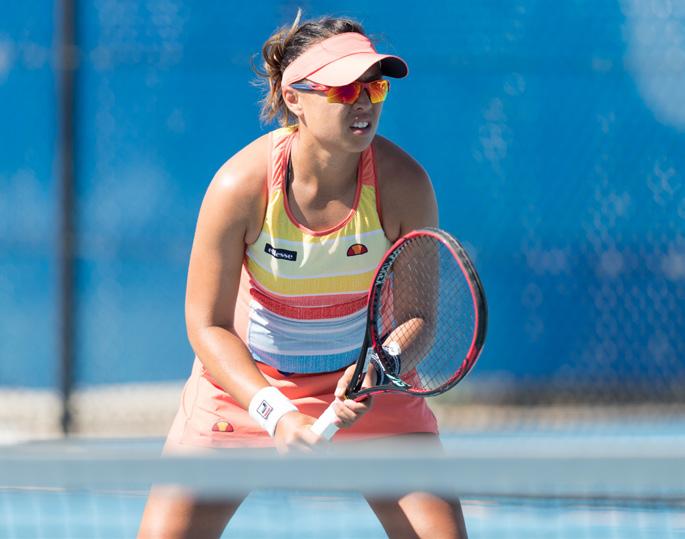
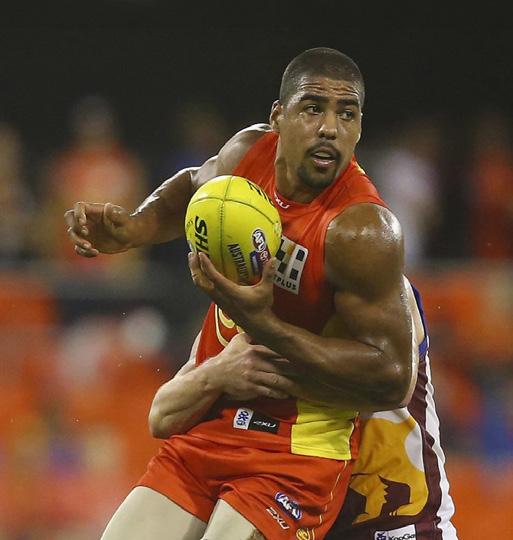
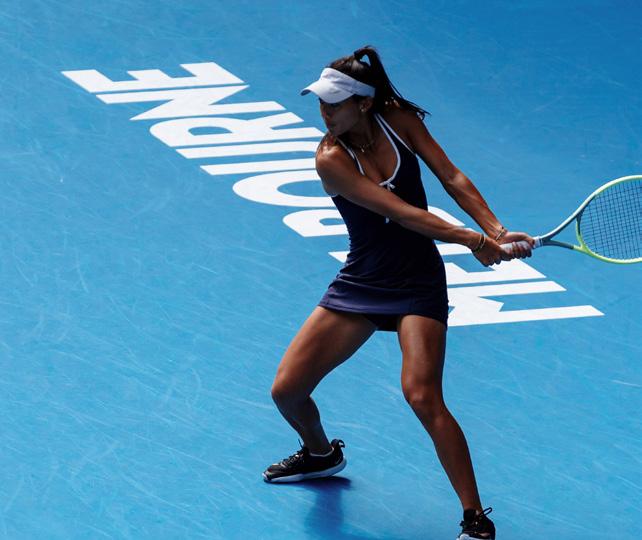
“I’ve also witnessed racist slurs against our players of colour, which we took straight to our governing body. You have to say a hard ‘no’ both in person at the time of these incidents and through the mechanisms you have to report it officially. You can’t sweep it under the rug,” he said.
and processing the loss, so when you add abuse and more negativity after you lose it can make you feel even more worthless.”
In stark contrast to many athletes, both players said they had never been racially abused while competing, only online after their match.
Bai said the abuse is why her social media accounts are set to private, while Hon, who made a public stand against the abuse last year, said she usually just deleted and blocked them, but then asked herself: “Why are we trying to hide it? We get it all the time. We need to call it out.”
A 2019 joint university study Participation versus performance: managing (dis)ability, gender and cultural diversity in junior sport found that "racial vilification was a common occurrence among players in junior sports, as well as with spectators … with non-white children being the targets of most abuse.” The study, which included interviews with more than 100 coaches, players, club officials and parents, also found that many instances of racism went unreported for fear of backlash against those who spoke up.1
Volunteers in local sport confirm there is definitely an issue in sporting communities.
“I have witnessed it in grassroots sports my whole life, to a certain degree,” Francisco Meza, a club administrator in community soccer, said.
“My sport has been referred to as ‘wog-ball’ for most of my life and the racism I see comes from all the different cultural and ethnic backgrounds within the sport. Countries who may have trouble spots or conflict back at home, bringing that to the football field here in Australia.
Delfina Shakespear, a national and state-level football match official and recent recipient of an ACT Government Woman of the Year award for her commitment to empowering female referees, has been the victim of racist and misogynistic abuse over several years.
In 2021 she was subjected to more than 10 listed offences of racist and discriminatory verbal abuse from one match that saw that team docked 24 competition points and the risk of being relegated, ordered to prepare a risk assessment management plan, given a formal warning, fined $1,000 and ordered to communicate the guilty verdict and sanctions to its spectators via social media.
When it comes to referee abuse generally and her commitment to the Reduce Abuse campaign, Shakespear told The Canberra Times in July 2021 that “everyone needs to buy in, from the grassroots up”.
“No matter what your role is, you shouldn’t feel like someone’s going to yell at you or abuse you, whether you’re playing, you’re spectating or you’re refereeing ... and it’s empowering people to feel if you see something bad and you’re not OK with it, call it out. That’s what we’re trying to get to.”
“
“I’ve also witnessed racist slurs against our players of colour, which we took straight to our governing body. You have to say a hard ‘no’ both in person at the time of these incidents and through the mechanisms you have to report it officially. You can’t sweep it under the rug.
Francisco Meza Community soccer club administrator1 The Conversation: Racial abuse is rife in junior sports and little is being done to address it.
Joel Wilkinson, former AFL and NFL player and a current advisor to Sport Integrity Australia, believes there is much we can do as a proud sporting nation to eliminate racism, but it shouldn’t be up to a few individuals.
“Racism in sport is becoming more publicised which is bringing it to the attention of more people, but it’s always been there,” he said.
“Sporting systems need to correctly deal with racism as racism isn’t always being held to account.
“Institutions, governments and sporting organisations must uphold their policy and legal requirements and be more transparent in their processes around racial discrimination.
“As a result, society will better understand their social and legal responsibilities to uphold inclusiveness and stop racial abuse in sport.”
Wilkinson is concerned about a pattern of racism in sport with victims of racial abuse feeling let down and unsatisfied by the process, and where Australian law around racism isn’t always upheld.
“That’s why it’s essential that sporting bodies and organisations such as Sport Integrity Australia play a pivotal role in holding these policies, laws and standards in sport to account.
“Sport and its institutions can influence society to understand what behavior and attitudes are acceptable or not. We must have accountability and consequences to set new and better precedents.”
Wilkinson acknowledged the role sport plays in Australia as a focal point for inclusion and where people can best express themselves, stay active and have fun. It’s something that brings Australia a great amount of pride.
“That’s the power of sport, but it can be quickly lost and the trust and passion tarnished if we don’t get it right,” he said. “That’s how influential this matter is and sport’s role in racism. What occurs on the field can carry off the field and into everyday lives.”
Wilkinson is pleased to see the work being done firsthand in Sport Integrity Australia and other sporting bodies on strategies to prevent and promote anti-racism in sport in the hope that we can find a new and better way forward in handling racism.
“If it can be better dealt with at the managerial, executive, board, legal and government levels then those who play sport or deal with racism, will benefit from that. A third-party organisation overseeing processes is always beneficial.”
“ Institutions, governments and sporting organisations must uphold their policy and legal requirements and be more transparent in their processes around racial discrimination. As a result, society will better understand their social and legal responsibilities to uphold inclusiveness and stop racial abuse in sport.Joel
WilkinsonFormer AFl and NFL
player
Erfan Daliri CEO of Kind Enterprises and social change consultant said “while racism in Australian sport is a significant issue, sport also has an incredible unifying power to make a difference if we are proactive about it. Let’s capitalise on that and contribute to a stronger social fabric.”
Daliri has been working in this space for over 20 years as an educator, consultant and advocate for social change, and now provides systems thinking approaches to the complex challenges of racial equity, social justice and multicultural affairs.
“We’re finding that each new generation is innately more aware of injustice, has a lower tolerance for it, and is more curious about solutions” Daliri said. “Young athletes, have the potential for a heightened sense of justice with the proper education and support around them.
“More broadly, we’re seeing a great shift in the desire to even talk about racism in Australia. In the past the conversation was limited in scope and depth, but we’re now seeing an appetite to talk about racism in a much more authentic and genuine way," he said.
“There are no excuses for slurs that could be interpreted as racist in nature. If the comments cause hurt, then intent is irrelevant. If the comments offend an individual, they also offend their families, their countries, their culture.
Let’s make these cowards the minority. Fans need to take control of their sports. They need to pledge to remove this from our sports. It’s time to call people out for bad behaviour.
That’s playing the Aussie way – clean, safe, fair and inclusive.
“David Sharpe CEO, Sport Integrity Australia
“But we’re only just scratching the surface of what needs to happen. Instead of a punitive approach focused on punishment we need to work with the whole ecosystem of sport and governance in a unified way to create an environment where racism is actually less likely to occur.
“We have an opportunity to ensure a much lower tolerance for racism as each generation comes along, especially in the lead-up to the 2032 Olympics. But we need to work through a few things that sport can do right now to ensure that happens.”
Daliri said that in many cases, particularly in grassroots sport, coaches, match officials and administrators don’t know what to do.
“A lack of racial literacy and confidence to even discuss race and racism means we can sometimes respond to incidents in counter-productive ways or fail to respond at all, which only reinforces the racial harm and normalises the behaviour.”
Our first thought might be to remove a victim of racial vilification after on-field abuse which he said is inadvertently punishing them, and rewarding the perpetrator, often an athlete or supporter from the opposing team.
“Education is key in this space,” Daliri confirmed. “Let’s work with sport at all levels to get it right and ensure we protect the integrity of sport and the hearts, minds and careers of athletes.
“We’re proud to be working with Sport Integrity Australia to build a long-term plan and strategy. Let’s use sport as the great unifier it can be in this country, do the work with our codes to empower coaches, players, match officials and volunteers to know what to do in these situations,” he said.
Queensland Rugby League CEO Ben Ikin believes that both elite and club level sports can shift community attitudes and create a space where racism is less likely to occur.
“The capacity, for tier one sports in particular, to affect positive change in communities is really heartwarming,” he said.
“When a community club is managed really well, when you've got good volunteers who understand that this is about providing a fun and safe experience for a whole lot of people that love the game, that want to participate in the game, those strong, well run community clubs strengthen the communities that they're part of.”
“Every weekend we witness incredible achievements across Australian sports, from the winning professional teams to the joy produced by the six-year-old participating in a sporting event for the first time,” said Sport Integrity Australia CEO David Sharpe.
“However, on a weekly basis we witness cowards hiding behind a keyboard racially abusing our sporting heroes, or people hiding in a sporting crowd yelling racial abuse while three rows deep.
“Attitudes won’t change until the narrative changes,” he said.
“It is incumbent on sporting bodies to use the power of their brands to engage their sponsors and use their media platforms to change attitudes. Sport and sponsors’ brands are being aligned to poor behaviours, however it is the power of these brands that can force a cultural shift to eradicate poor behaviours. Warning
“There are no excuses for slurs that could be interpreted as racist in nature. If the comments cause hurt, then intent is irrelevant. If the comments offend an individual, they also offend their families, their countries, their culture.
“Let’s make these cowards the minority. Fans need to take control of their sports. They need to pledge to remove this from our sports. It’s time to call people out for bad behaviour.
“That’s playing the Aussie way − clean, safe, fair and inclusive.”
Patrick Johnson, Safety and Culture Advisor, Sport Integrity Australia, said we have “to create real space for culturally safe spaces around diversity and inclusion in Australian sport”.
“Sport brings people together and it needs to reflect and mirror our actions, values and aspirations as a society and country,” Johnson said. “We need to draw a clear line in the sand. We are all responsible to call out racism, we do not tolerate it in our sport now or in the future, our kids deserve better as this doesn’t represent our Australian way of life.
“We have a unique opportunity for sport to lead in this space. But it takes all of us to stand up and say NO to racism and discrimination in all its forms. Racism stops with each and every one of us.”
Committed to safe, respectful and inclusive sport, our Play the Aussie Way campaign has been created to encourage Australians to call out bullying, harassment and racism.
In addition to the Play the Aussie Way awareness campaign, Sport Integrity Australia has implemented the National Integrity Framework and a range of additional policy options, along with the reporting hotline, aimed at safeguarding athletes at all levels from racial abuse.
Learn more about sideline behaviour in the Play by the Rules course on sideline behaviour at www.playbytherules.net.au/got-an-issue/sidelinebehaviour
“ We have a unique opportunity for sport to lead in this space. But it takes all of us to stand up and say NO to racism and discrimination in all its forms. Racism stops with each and every one of us.Patrick Johnson olympian | safety & Culture advisor
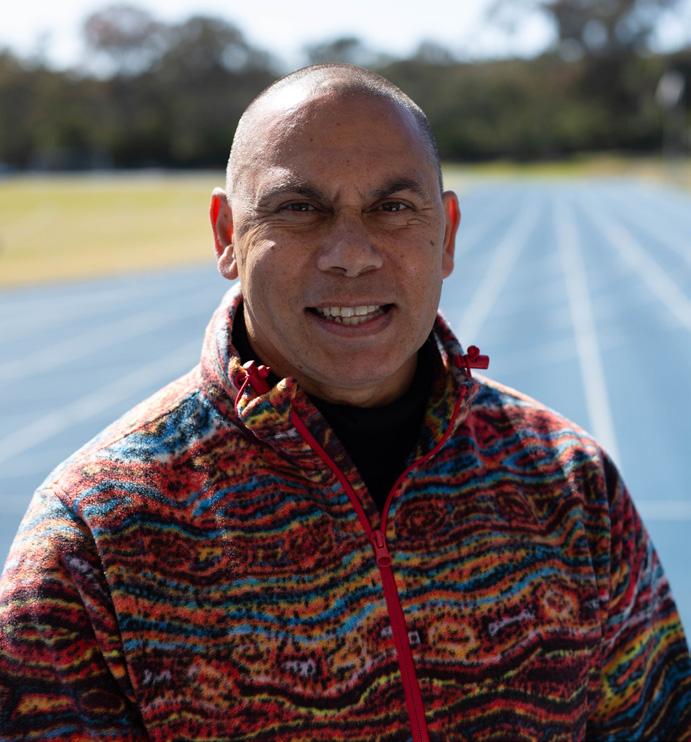
1800 161 361
The Safe Sport hotline has been created for people to share their story with a trusted member of Sport Integrity Australia who can provide guidance around the options available to deal with the issue. This includes wider racial and cultural issues.
The World Anti-Doping Agency’s Operation Refuge report identifies patterns, governance deficiencies and strategies to address the issue of minor doping in sport.
In January, the World Anti-Doping Agency (WADA) released the findings of Operation Refuge, an analysis on the increasing trend of minor doping in sport.
The investigation was prompted by an increased number of reports submitted to WADA’s Confidential Information Unit in 2021.
The investigation, conducted by the agency’s Intelligence and Investigations Department, was to determine the reason behind the increase in doping cases among minor athletes, including pre-teen athletes, as well as the emotional, mental and professional impacts that follow an anti-doping rule violation (ADRV).
WADA President Witold Bańka said the data, conclusions and stories within the report “should reverberate loudly” throughout the sporting world. “My hope is that the
findings, and more importantly the first-hand accounts from minors and their support networks, will create a strong sense of urgency within the anti-doping community regarding the ways we can better protect youths who find themselves in these types of situations in the future,” Mr Bańka said.
As defined by the World Anti-Doping Code, a minor is someone under the age of 18.
Most minor athletes fall under the ‘Protected Persons’ designation and are treated differently to adult athletes as they may not have the full intellectual maturity needed to understand the requirements of the Code.
The Operation Refuge report identified several key issues which were seen to either contribute to the issue of minor athlete doping or exacerbate it.
Alarmingly, a lack of education was noted as one of the key contributors to increased doping by minors.
Given that many athletes will form their habits in adolescence, it is vital that these young athletes have all the tools necessary to be successful competitors with integrity.
The pressure to succeed and continue on a path to become a professional adult athlete was highlighted as a motivator for doping.
Pressures from coaches to perform at an elite level, while also maintaining impossible physical standards, also contributed to minors using banned substances such as diuretics.
The report contained several firsthand accounts of minor athletes who had returned positive tests to prohibited substances and the emotional and mental toll this takes in addition to the risk to their careers.
The report highlighted a need for greater support and rehabilitation services to those who have committed an ADRV. While sanctions are in place as a deterrent for illegal doping, the report highlighted that, especially where minor athletes are concerned, there should be a focus on education and rehabilitation to allow those athletes to eventually re-enter competitions as stronger and more informed individuals.
As a matter of context, the investigation attempted to refer to relevant academic literature on the issue but found that no substantive research has been conducted on the motivating factors leading to minor doping. Instead, much of the research was concerned with the ethical issues relating to minor doping.
There have been 1,518 Adverse Analytical Findings (positive tests) reported against 1,416 minors since 2012.
Diuretics, stimulants and anabolic steroids were the highest detected substances amongst minors.
It is important to note that minors are tested incompetition at a substantially higher rate than adult athletes (60% of the time) and, therefore, twice as likely to be caught doping in-competition than out-ofcompetition.
Sport Integrity Australia did not receive any specific intelligence in relation to minor athletes in Australia as an outcome of WADA’s report.
The Sample Collection Authority and the Doping Control Officer have the authority to make modifications as the situation requires as long as such modifications will not compromise the integrity, identity and security of the Sample. All such modifications shall be documented.
Sport Integrity Australia has procedures in place to support minors through the anti-doping process.
A primary mandate of Sport Integrity Australia is to educate athletes of all ages on the risks of doping, not just to the spirit and fairness of sport but the risk which is also posed to an athlete’s health.
Where minors are concerned, no underage athlete is tested prior to having participated in anti-doping education.
It’s important to remember that athlete personnel have responsibilities, too. While 11 anti-doping rules apply to athletes, seven apply to support staff. If we become aware of an ADRV by a protected person we are obligated to investigate in order to protect all potentially vulnerable people.
Additionally, Sport Integrity Australia casts a wide net, delivering education sessions beyond professional sporting organisations, athletes and coaches and out to schools and clubs across the country.
A minor is required to have a support person who is over 18 (e.g. coach, support personnel, parent) with them throughout the testing process.
Sport Integrity Australia has made a decision that if a minor is at home alone we will not enter the home and we will not conduct a test without a parent or guardian or authorisation from parent/guardian (i.e. if the minor athlete advises that a 20-year-old sibling can be the adult representative we will still ask athlete to call the parent for consent).
Our testing staff will also take extra time to explain the process and make sure they understand all elements of the process and that they know their rights.
Whilst we do not believe there is a significant issue of minors doping in Australia, we do continue to monitor and test junior athletes. Unfortunately, Sport Integrity Australia’s data has indicated that as junior athletes progress through elite pathways and development programs, the benefit of lucrative salaries and endorsements can serve as an incentive to taking shortcuts such as doping.
We will continue to allocate resources appropriately to test our junior athletes, across all sports to ensure that risks of underage doping are effectively managed.
In addition to educating minor athletes around the risks associated with doping, Sport Integrity Australia also has a virtual reality experience which allows athletes to go through an online simulated sample collection process. The user learns what they have to do during a doping control test and what their rights and responsibilities are as an athlete. This allows the athlete to not only feel confident in what is required of them during the sample collection process but also establishes the expectations of doping control officers as well.
All of Sport Integrity Australia’s anti-doping investigators have completed an Interviewing Children course. Additionally, all operational matters involving children are conducted in accordance with the agency’s Child Safe Policy.
Protecting the wellbeing and rights of minor athletes is crucial to the work and objective of Sport Integrity Australia and, as such, any concerns or matters of child abuse are promptly referred to law enforcement and child protection agencies.
In instances where a minor athlete has committed an ADRV Sport Integrity Australia will provide access to independent and confidential counselling services for the athlete. Additionally, athletes and support staff are able to review the ADRV Handbook which details all components and processes as they relate to a positive result.



2023 TESTING STATS
TOTAL TESTS: 3959

MINORS TESTED: 82
% OF MINORS TESTED: 2%
MINORS WERE TESTED IN THESE SPORTS IN 2023



AQUATICS

ATHLETICS

CRICKET

CYCLING

DANCESPORT


FENCING
FIELD HOCKEY

FOOTBALL

GYMNASTICS

JUDO
MODERN PENTATHLON
MOTORCYCLE RACING


PARA-SWIMMING ROWING

RUGBY LEAGUE


SAILING
SHOOTING

SKATING

SPORT CLIMBING

TABLE TENNIS

WEIGHTLIFTING


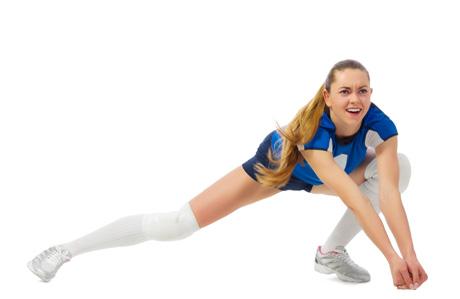
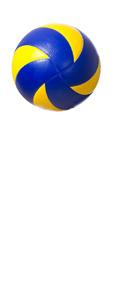
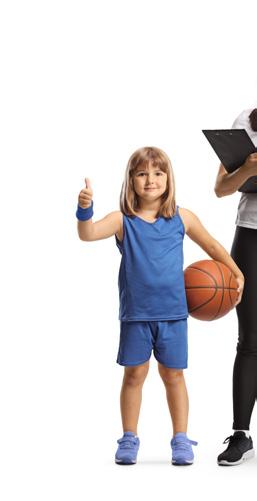
Through our Safety in Sport Division, Sport Integrity Australia is well placed to provide a nationally coordinated response to the integrity threats to women and girls across all levels of sport in Australia.
The Sport Integrity Act (2020) outlines the agency’s role to prevent and address threats to sport integrity and to coordinate a national approach to matters relating to sports integrity in Australia.
Being collaborative, proactive and on the front-foot is a non-negotiable.
Through the Empowering Women and Girls in Sport Program, Sport Integrity Australia is seeking to ensure a proactive and coordinated approach to prevent and respond to integrity threats to women and girls across all levels of sport in Australia.
Sport Integrity Australia is working with partners including the Australian Sports Commission, the Office for Sport, the National Sports Tribunal and the Office for Women to identify areas for collaboration to have an impact by strengthening the sporting environment through prevention and proactive responses to integrity threats to women and girls.
Sport Integrity Australia acknowledges a variety of strategies exist across government, sport, industry and the community to expand opportunities for women and girls. The collaboration includes how Sport Integrity Australia can align and support these new and existing strategies to ensure integrity issues impacting women and girls in sport are embedded into each.
The Empowering Women and Girls in Sport program aims to:
Support Women in Leadership
Recognising new positive duty (Sex Discrimination Act 1984 Cth) on NSOs/NSODs to eliminate workplace sex discrimination and harassment, leverage the Respect@Work workplace prevention and response framework to enhance behaviours from Board to community, with the aim to remove the integrity threats that create barriers for women remaining in roles of leadership.
Empower through Education
Strengthening integrity frameworks, including the 1800 Safe Sport hotline to educate, detect, deter and disrupt integrity threats that create barriers for women and girls.

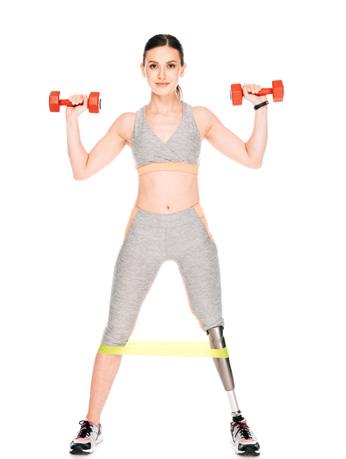
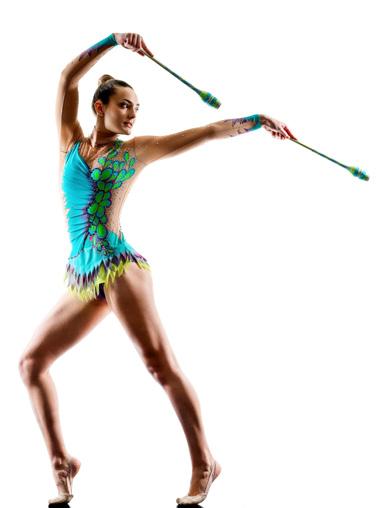

Influence in Partnership
Partnering with women and girls’ initiatives across government, sport, industry and business to embed integrity issues.
Understand and Strengthen the Integrity Environment
Identifying research priorities and partnering in research to inform future policy, procedures and education to proactively strengthen the sporting integrity environment.
Consultation commenced December 2023 and will continue through to July 2024, with the intent to further refine concepts for implementation.
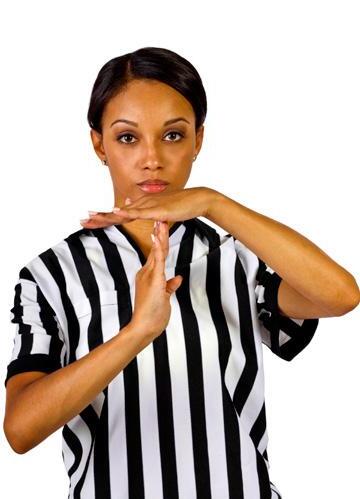
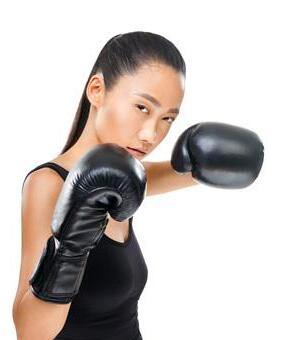
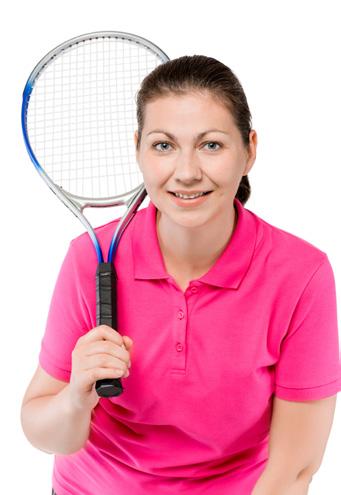

There is growing concern around integrity threats to women and girls such as online abuse, discrimination, child safeguarding, competition manipulation and anti-doping which can cause serious long-term harm, negatively impact equal participation and limit the numerous benefits that sport can provide.
The agency has an important leadership role to play in protecting women and girls from these integrity threats, to thrive in sport at all levels.
• Between January 2022 to April 2023, more than half of complaints investigated by Sport Integrity Australia related to alleged prohibited conduct against women or girls.
• During the period January 2022 to April 2023, child safeguarding concerns accounted for 80% of complaints investigated by the agency. Of these, over 70% raised concerns over men coaches and young girl athletes.
• Research has found that women athletes received three times as many negative comments on Facebook posts shared by major sports news broadcasters in Australia over a 12-month period as men (27% compared to 9%) and that over a quarter of all comments regarding sportswomen were negative, sexist, sexualised, or belittled women’s sports1
• The increasing interest in women’s sport will continue to attract significant broadcast and sponsorship funding, however this also increased the risk of illegal offshore gambling – making women’s sport more vulnerable to competition manipulation attempts.
• Sport remains an industry with one of the largest gender pay gaps, particularly in professional sports. Insufficient pay heightens the risk of an athlete engaging in competition manipulation for financial gain.
• As testing in professional women’s sport increases in concert with greater participation, there is the potential for athletes to inadvertently consume a prohibited substance in supplements, or inadvertently commit a violation – a risk heightened in women’s sport, given the reduced opportunities for education and access to dedicated support staff.
Women’s sport has been in a period of extraordinary growth and gaining mainstream and political support. The narrative around women’s sport in Australia has changed dramatically in the past six months, much of it due to the Matilda’s success, however despite this growth, women still remain under-represented in leadership roles in sport, such as board members and chairs, chief executive officers, and senior executives in Australia and internationally.
• In 2023, 22% of CEOs, across 65 National Sporting Organisations were women2
• In 2023, 25% of board chairs across 65 National Sporting Organisations were women3
• These figures are lower in 2024 given the recent departure of high-profile CEOs and board members.
The Australian Government is committed to strengthening Australia’s leadership on gender equality and is developing the National Strategy to Achieve Gender Equality to drive this ambition.
In August 2022, the Minister for Sport, Anika Wells, called for greater female representation in sports’ boardrooms and on the field – emphasising the need for equal pay, integrity and equality in sport.
In addition, the Australian Government is providing $200 million for the Play Our Way program, which will provide funding for local solutions and improvements that address participation barriers faced by women and girls.
Internationally, a raft of initiatives exist such as the United Nations (UN) Women initiative, which is the entity dedicated to gender equality and the empowerment of women. A global champion for women and girls, UN Women was established to accelerate progress on meeting their needs worldwide.
“As Government investment in infrastructure and support of women and girls in sport increases, it is critical that the environment is strengthened to remove integrity barriers which impact on participation so that women and girls can enter, stay and thrive in sport,” Sport Integrity Australia Deputy CEO Dr Sarah Benson said.
The Empowering Women and Girls in Sport Program is being led by Dr Sarah Benson.
CEO David Sharpe says it’s important to have as many diverse voices as possible to represent the wider Australian community.
“Sixty per cent of our agency is women driven – and that’s a stat that we are proud of,” Mr Sharpe said. “We will continue to amplify female and other diverse voices in our agency and create opportunities at all levels.”
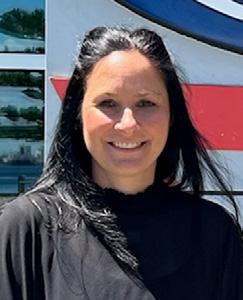
Mr Sharpe also paid special tribute to the amazing women at the Australian Sports Commission, the National Sports Tribunal, the Office for Sport and the Sport Integrity Australia Advisory Council, chaired by Sarah Kenny, who collectively form the eco-system driving the government’s sports agenda.
The 2032 Brisbane Olympic and Paralympic Games is just around the corner and Sport Integrity Australia can play a leading role in its legacy.
It’s about starting now to influence today’s young women and girls, men and boys, so they all understand that abuse, bullying, harassment, sexual misconduct, discrimination, victimisation and vilification and cheating are not acceptable.
1 Snapshot analysis: social media commentary of sportswomen and men, PLAN International, (April 2019).
2 Data reported by National Sporting Organisations to the Australian Sports Commission, (accessed 24 April 2023).
3 Ibid
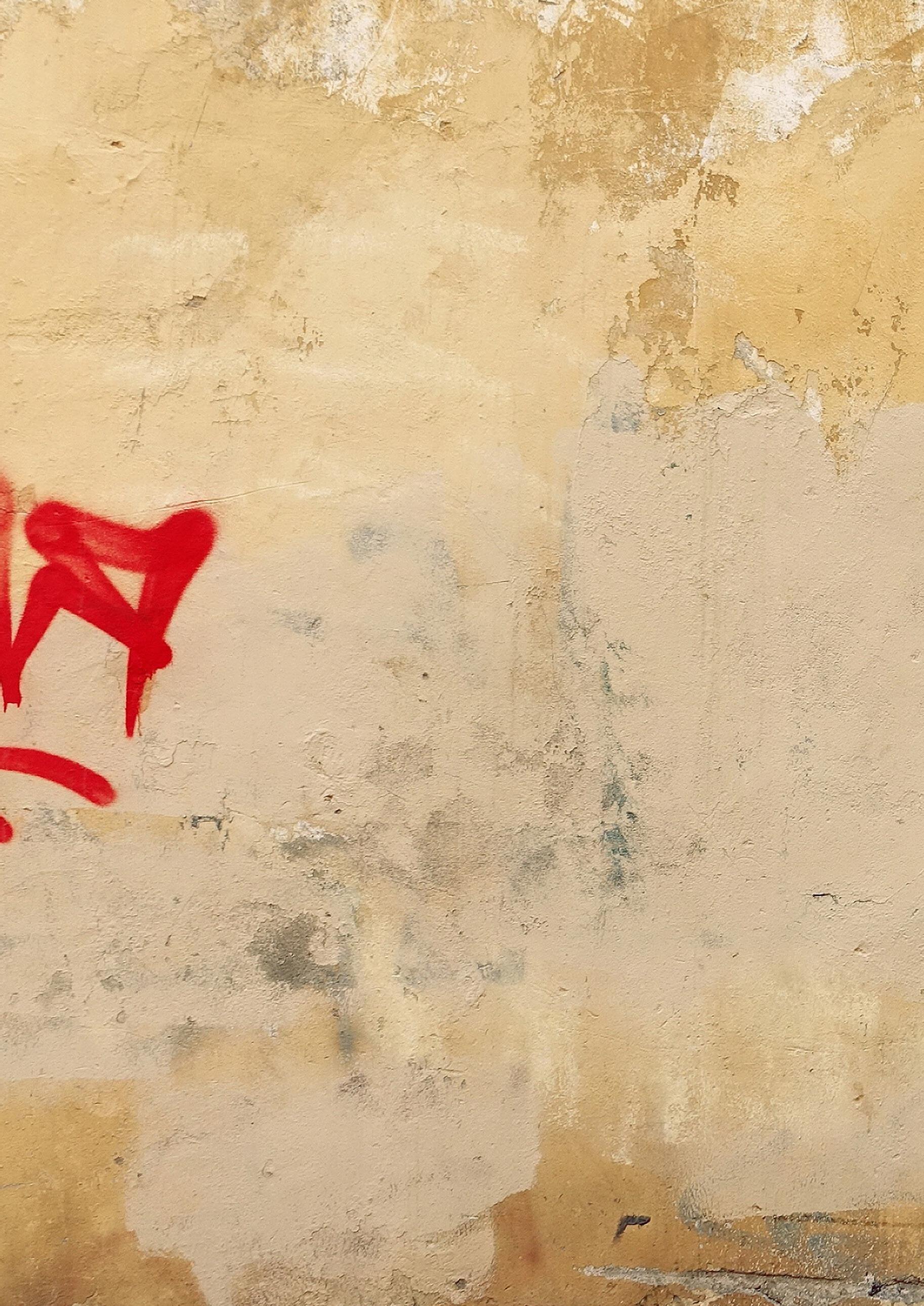
A Substances of Abuse category was introduced as part of the 2021 Prohibited List and 2021 World Anti-Doping Code. Substances in this category are Cocaine, Heroin, MDMA and Cannabis.
These substances have been included because they are known to be frequently abused outside of sport.

While stimulants can clearly have a performance enhancing effect when used In-Competition, often the quantity detected In-Competition strongly suggests that the use occurred Out-of-Competition in a social context with no effect on sport performance.
The 2021 Code permits greater flexibility in the sanctioning when an athlete tests positive In-Competition to one of the substances of abuse. Generally, the application of this Code provision would be determined by the analytical concentration/s reported by the World Anti-Doping Agency (WADA) accredited Laboratory.
These Substances of Abuse are prohibited In-Competition only. The In-Competition period generally commences at 11.59pm the night before a competition in which an athlete is scheduled to compete, through to the end of that competition and any sample collection process undertaken.
International Federations may apply to WADA for permission to change their ‘In-Competition’ period if they have a compelling justification. Athletes should check with their International Federation to ensure that their ‘In-Competition’ period aligns with the 2021 Code.
Under the World Anti-Doping Code, Sport Integrity Australia is obliged to vigorously pursue all potential Anti-Doping Rule Violations (ADRV) within its authority.
If we become aware of information to indicate a further ADRV in a Substance of Abuse matter, leniency is not available. Other ADRVs that may arise from an investigation are Use and/or Attempted Use, Possession and Trafficking or Attempted Trafficking.
All prohibited substances are added to the Prohibited List because they meet two of the three following criteria:
Use of the substance has the potential to enhance or enhances performance.
Use of the substance represents an actual or potential health risk to the Athlete; and
Use of the substance violates the spirit of sport.

The studies found that cocaine use by athletes has been associated with acute and chronic cardiovascular disease , which can lead to coronary artery aneurysms, aortic dissection, rupture, vasculitis and stroke.
Cocaine is classified by WADA as a S6 Stimulant. Cocaine is illegal and highly addictive. It is a stimulant drug which speeds up the messages travelling between the brain and body, causing high levels of dopamine to be released.
While the risk to sporting careers are very real, illicit drug users are also risking their health. All drug use contains a certain degree of risk, and the harms can be physical, psychological and social.
In 2022, the National Drug and Alcohol Research Centre acknowledged a large increase in cocaine-related deaths in Australia since 2012, with 398 known deaths in the past five years.
International studies have shown cocaine puts added strain on the cardiovascular system during exercise. The studies found that cocaine use by athletes has been associated with acute and chronic cardiovascular disease, which can lead to coronary artery aneurysms, aortic dissection, rupture, vasculitis and stroke.
Can cocaine improve an athlete’s performance?
Cocaine does have a performance enhancing effect when used In-Competition and is a Prohibited Substance under the World Anti-Doping Code for In-Competition use. As a stimulant, cocaine can produce an intense ‘rush’ with users feeling a sense of alertness, arousal and increased confidence.
What is the penalty for testing positive to cocaine?
An athlete faces a ban of up to four years if a Substance of Abuse is in their system In-Competition.
As of 1 January 2021, if an Athlete tests positive to a 'Substance of Abuse’, then the Athlete’s period of Ineligibility may be reduced to three months if the Athlete is able to prove that the substance was ingested or Used Out-of-Competition and was unrelated to sport performance.
The ban could be further reduced to one month if the athlete completes a Substance of Abuse treatment plan that is approved by the responsible Anti-Doping Organisation.

When can an athlete be tested for cocaine use?
There are differences in Out-of-Competition tests conducted by Sport Integrity Australia and those tests conducted by a National Sporting Organisation under an illicit drugs policy.
Sport Integrity Australia can only test for substances prohibited In-Competition during the In-Competition period. In an Out-of-Competition environment, Sport Integrity Australia cannot test for Substances of Abuse but if an athlete uses an illicit substance Out-of-Competition, that athlete needs to be aware that these substances can stay in your system for a period of time, which might mean the substance could be detected In-Competition.
Regardless of when an athlete takes illicit drugs, if they are still in their system on game day they will be penalised.
How long does cocaine remain in my system?
The effects and traces of cocaine will vary from person to person, depending on multiple factors such as size, weight, diet and activity. As an uncontrolled drug, the quality and strength can vary greatly from one batch to another. There is no definitive timeframe in which cocaine or its metabolites will become undetectable in the system.
Can a Therapeutic Use Exemption (TUE) be obtained for a Substance of Abuse?
No.
What is Sport Integrity Australia’s stance on cocaine?
Sport Integrity Australia does not condone illicit drug use. We continue to work with sports to provide advice, support and resources to shape positive cultures to keep sport safe and fair for all.
Psychoactive drugs may affect a person’s cognition, moods, perceptions, consciousness and emotions and are therefore deemed unsafe for use. The psychoactive chemicals derived from cannabis and their synthetic counterparts, called cannabinoids, are Prohibited In-Competition under the S8 Cannabinoid substance class.
Are all forms of ‘cannabis’ banned?
Yes. All forms of the cannabis plant which contain cannabinoids or THC compounds are banned In-Competition, this includes synthetic cannabinoids or products which mimic the effects of THC. CBD is the only exception, however athletes considering the use of a CBD product need to be aware of the risk of use. (see below)
Banned:
• Tetrahydrocannabinoidols (THC)
• Marijuana
• Hash/hashish
• Hash oil
• Synthetic cannabinoids which mimic THC
Permitted:
• Cannabidiol (CBD)
What about CBD use?
Athletes considering the use of CBD need to be aware that many CBD products will also contain prohibited cannabinoids. This means there is a risk of testing positive for other cannabinoids after use of a CBD product. Many cannabinoid products contain a mix of THC and CBD and other substances. There are also examples of THC contamination of products marketed as ‘pure’ CBD.
Regardless of when an athlete takes illicit drugs, if they are still in their system on game day they will be penalised...
... There is no definitive timeframe in which cocaine or its metabolites will become undetectable in the system.
Athletes who choose to take an over-the-counter or internet purchased (non-prescribed) cannabidiol product, even when marketed as ‘pure’ CBD oil, are cautioned about the risk of contamination and advised to consider use akin to the risk of a supplement. Assessment of the risk of a supplement can be made through the Sport Integrity Australia app and is free to download from Google Play or Apple stores
Athletes prescribed CBD products by a Medical Practitioner for a documented medical condition, may be able to apply for a TUE.
What are the health risks of using cannabinoids?
In addition to risking your career the reported health risks of cannabinoid use include paranoia, anxiety, increased heart rate, slower reflexes and memory impairment.
What are the health impacts of using cannabinoids under exertion?
According to the Gatorade Sports Science Institute, the use of cannabinoids under exertion can have adverse effects on cardiovascular and respiratory health and performance.
In addition to risking your career the reported health risks of cannabinoid use include paranoia, anxiety, increased heart rate, slower reflexes and memory impairment.
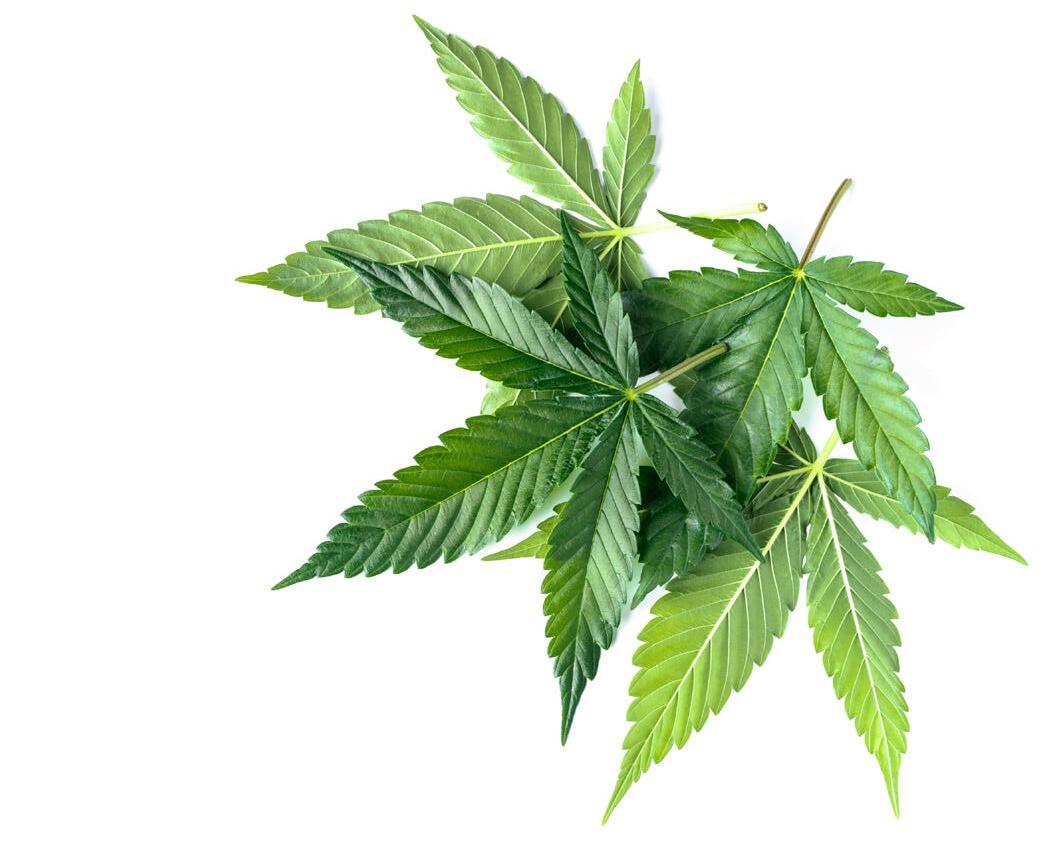
Can a TUE be obtained for medicinal cannabis and medicinal cannabinoids?
Athletes prescribed cannabinoid products by a Medical Practitioner to treat a medical condition may be able to apply for a TUE
A TUE is an exemption which permits an athlete to compete while taking the prohibited substance.
For a TUE to be granted, the athlete and their doctor must submit a completed application form and detailed medical information to the Australian Sports Drug Medical Advisory Committee (ASDMAC), an independent advisory group of experienced sports physicians.
Does having a TUE for medicinal cannabis give me legal authority to possess cannabis?
No. Being granted a TUE does not endorse or support the use of cannabinoids more generally. Nor does it imply legal authority to carry or transport cannabinoids. The exemption only accepts that the use meets the WADA International Standards for Therapeutic Use Exemptions criteria.
Is it an ADRV to test positive to cannabis?
Yes, an athlete faces a ban of up to four years if a Substance of Abuse, such as cannabis, was deemed to be used In-Competition without a valid TUE (for medicinal cannabidiol only).
How long does cannabis remain in my system?
There is no definitive timeframe in which cannabis or its metabolites will become undetectable in the system.
What is the best way to avoid a positive cannabis result?
The simplest measure any athlete can take to avoid a positive result is to not use cannabis, or cannabis derived substances, unless a TUE has been obtained.
To learn more about banned substance and stimulant use you can access the WADA Prohibited List on the WADA website.
If you are concerned that a substance you are taking may contain a banned ingredient you can check your substances on Global DRO
Illicit drugs in sport course: elearning.sportintegrity.gov.au/login/index.php


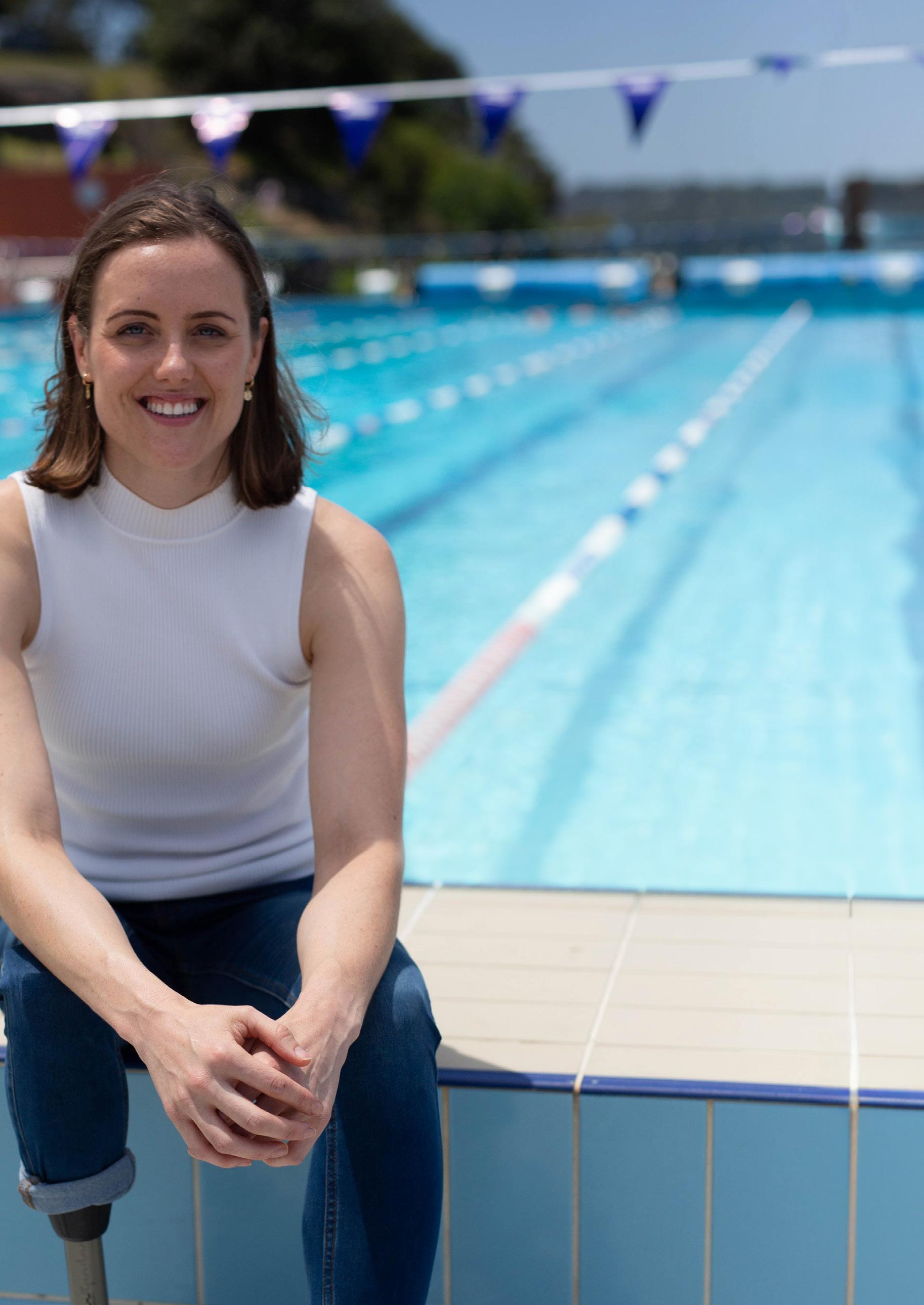
What better way to highlight how to 'Play the Aussie Way' than via the people who live and breathe sport every day!
To Play the Aussie Way means something different for each and every one of us. For some, it's fun and fair. For others it's respecting the rules and opponents or always trying your best.
Whether you’re a sporting participant, parent, volunteer, coach, administrator, support person, official or fan, there's a central theme – playing in an environment that's safe and fair. But it also means calling things out when you know they are wrong.
With more than 80 sports signed up to the National Integrity Framework, the agency needs to spread the message among sport’s participants about who we are, what we do, and why protecting the integrity of sport matters.
Our Play the Aussie Way campaign promotes everything that we all value about sport and ends with the message that we need to protect it. The campaign features five athletes (past and present) and a coach who, in their own words, talk about what playing the Aussie way means to them.
Tina Rahimi, a Commonwealth Games bronze medallist and Paris Olympic hopeful, said playing the Aussie way is about “being fair and having that sense of belonging”. Junior gymnast Kirra equates it to having “strong relationships with your teammates and coaches and following all the rules”.
Ellie Cole, who became Australia’s most decorated female Paralympian when she won her 17th Paralympic medal at the Tokyo Games, says the Aussie way means having the right to enjoy sport “regardless of your background or disability”.
For 16-year-old Harry, who plays lots of sports, it is “to play to the best of your abilities whilst also respecting the other team, coaches, opposition … I don’t think it’s all about winning, I think it’s about trying to have fun.”
Patrick Johnson – the first man of non-African descent to run under 10 seconds for 100m – believes the Aussie way is “leading by example on the field and off the field … it’s about calling out bullying, harassment, racism.”
NBL Hall of Famer, coach Cal Bruton, summed it up nicely: “Play hard, play smart and play together. You have to have respect for the game, respect for yourself, and respect for everyone around the game.”
While promoting safe and fair play, the campaign is also designed to educate participants on what sport integrity is. The agency is keen to ensure this message filters down to all levels and everyone involved in sport: from the athletes, coaches, administrators, right through to the volunteers and parents.
Sport Integrity Australia is hoping this campaign will help change behaviours and the culture of sport. It is clear that there is still work to be done, with statistics showing children and young people, in particular, remain vulnerable in sporting environments.
In 2022−23, the agency received 294 matters relating to child safeguarding with the majority of allegations of inappropriate behaviour under the Child Safeguarding Policy by those in coaching roles.
This statistic indicates that not everyone who works with children in sport is aware of their responsibilities, with 35% of matters received about the conduct of coaches/assistant coaches. Complaints were also received against athletes/players, board/committee members, parents/guardians, sporting organisations and officials.
The majority of these matters involved:
• inappropriate use of tone of voice and language
• use of one-on-one electronic communications
• engaging in social events outside of the sport, and
• failing to provide a positive environment.
These behaviours impact the participants’ enjoyment of sport and the continuing participation of these participants in sport and is a continuing threat to the integrity of sport which is why the campaign is so important.
The community engagement with the Play the Aussie Way campaign has been encouraging.
One community member says the Aussie way is "having a sense of fairness and enjoyment, with sport played for the right reasons and in good spirits. And, while it might be serious on the field, off the field it has a sense of friendship and camaraderie."
"The beauty of sport is it’s unpredictable, it’s exciting," says another. "But what I love most about sport is that it’s a community. Your team and club are like your extended family. That’s what makes it so special."
For another, one of the best things about playing sport is the "camaraderie between teammates, supporting each other whether we win or lose".
Sport should be a safe place for all participants, free of abuse, racism and discrimination. That’s the Aussie Way.
Tina Rahimi
Commonwealth Games bronze medallist
First woman Muslim boxer to represent Australia at a Commonwealth Games
Paris Olympic hopeful
Cal Bruton
NBL legend and Hall of Fame inductee
Championship winning player and coach
Ellie Cole
Champion swimmer
Australia’s most decorated female Paralympian
Sport Integrity Australia Athlete Advisory Group member
Patrick Johnson
Olympic sprinter
First Nations leader
Sport Integrity Australia Culture and Safety Advisor
Harry
16-year-old sport enthusiast
Enjoys playing local soccer, AFL, OzTag to name a few
Kirra
14-year-old gymnast
Aspiring Olympian
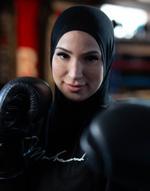
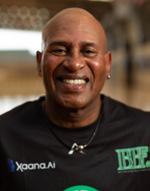
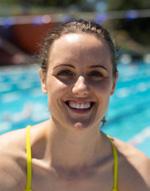



Get behind the campaign! What does playing the Aussie
Share on your social channels and tag us.

This episode of our podcast OnSide talks to Play the Aussie Way campaign ambassadors Cal Bruton, Ellie Cole and young soccer player Harry about the culture shift they hope to lead. Below is an edited extract.
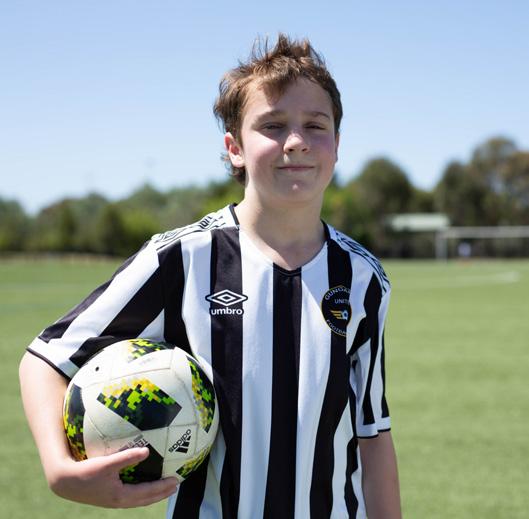
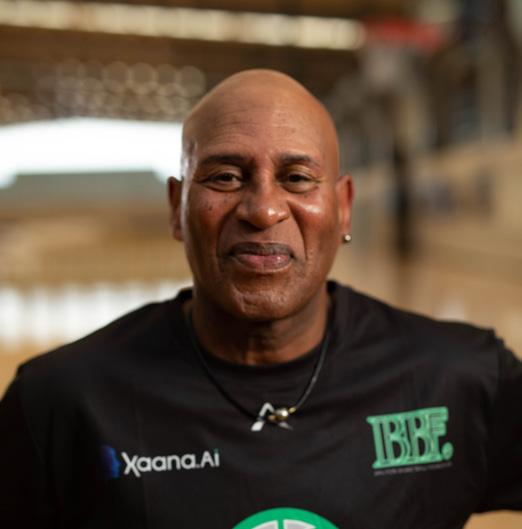
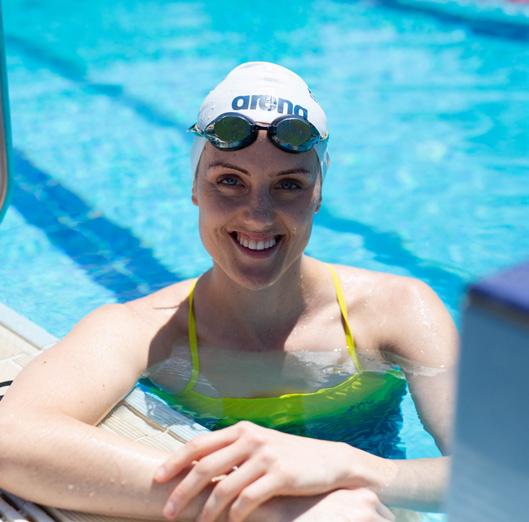
What does Play the Aussie Way mean to you?
Harry: It’s playing for fun and not playing as if you need to win every game. Make sure that you get the enjoyment out of it and making sure everyone − refs, opposition, teammates, coaches − all enjoy the game as much as you do.
Cal: Just being there and being straight up, honest and then competing and having fun. If you're doing that, you bring out the best in everyone around you because attitudes are contagious.
Ellie: I was a Paralympic swimmer and faced a fair amount of discrimination I suppose early on in my career. When I reflect on my career, everybody deserves to play sport regardless of their background or whatever their disability or level of disability or level of impairment is. I think playing the Aussie way means an equal chance for everybody.
Just on discrimination, can you describe what it was like for you and how you overcame it?
Ellie: When I started competitive swimming at nine, there wasn't really any sort of performance pathway for me to follow. I had to follow the same pathway as all of my able-bodied squad mates and that was really challenging because, as a leg amputee, I did struggle in some areas of swimming like kick. Obviously, breaststroke was quite challenging for me. Another challenge was funding and it's still, I suppose, not as equal as we would like it to be, but we're making huge steps forward every single year for pay parity.
Every Paralympian has an amazing back story and that resonates with the Australian sporting community and people watching sport.
Ellie: Yeah, they really do. It really hit me at the Tokyo closing ceremony when I was wrapping up my entire 17-year Paralympic career and I was surrounded by people who have chosen to be the best version of themselves despite what has happened to them. That's exactly what Play the Aussie Way is about. It's about everyone having access to an opportunity like what I had … whether you're at grassroots or whether you're at the elite [level], it really is about bringing an entire world together, not just a community, but an entire world in a very impressive way.
In junior sport, it's always important to educate your parents. How does that go?
Harry: You'd always see a few parents in the crowd getting angry. You often feel kind of bad for the refs because, at least in the younger age groups, they're young refs. You can see why they wouldn't want to continue reffing, so I think that also comes down to developing the reffing system and developing the game. You need to respect the refs in order to make sure [they] will come through the lower age groups. You've got refs being disrespected by the parents and their children might grow up in that environment, it’s not good.
Harry Ellie Cole
That’s the ethos, isn't it, of Play the Aussie way? It's not just about winning, it's about enjoyment, health, playing with your mates.
Harry: I think last year we didn't have a great season, so a few of my teammates were upset when we lost, but that was the first year I tried just playing for fun and I really felt more connected to the sport and felt more like I wanted to play each week and like I wanted to go to training. So I think that's the better way to approach the game.
I would imagine that your approach is a little different than a lot of other players your age.
Harry: Yeah, I think so. And you notice it whilst playing, how competitive people are, especially around my age where people start going on to the next level. That's why I've stepped back from the competitiveness because you can see it in other people while playing. They get really competitive and it doesn't look like they enjoy the sport as much.
Cal, you've been a long-time player/coach in Australia. Basketball coaches are among the most theatrical, especially when the decision goes against your team.
Cal: I’ve always tried to be that coach that if I saw something that was totally out of character and it was incorrect, I'm gonna stand up for my team. I'll stand up for my players and try to challenge it the best way I can. I think I've only got thrown out of one game in my whole career here. I still remember that dude. But I think at the end of the day, I earned respect from doing that for my players.
Harry, just on the respecting the referees decisions.
Harry: Respect is like the big thing when it comes to at least junior football, any sports. Without respect, you won't have refs. You won't have umpires, you won't even have kids playing and kids wanting to play if there's no respect shown between coaches and players.
Cal: We have struggled keeping umpires on board. They're there to support the game and I think the game is the most important thing, getting more kids to play sport. It breeds a healthy lifestyle, education, sportsmanship. It provides a healthy environment for all our youths coming through.
Cal, did you encounter much discrimination, racism, with the barriers to you coming through?
Cal: Without a doubt. To this day I still face it and for me personally it's always the challenge … I try to live my life to be the best possible person I can be and be a mentor and a
leader for all young disadvantaged youth that are looking for an opportunity to be on the right track and grow and sport is a just a tremendous vehicle for that.
How do you overcome racism? Because it can affect you, can't it?
Cal: I think it's important to be angry, but the way you deliver that anger is the other thing I think you have to be smart how you go about it. My belief is that you pack your pride suitcase wherever you go. Be present, have respect for yourself, your family, have that intellectual quality where you're trying to learn, unlearn, re-learn.
Ellie, do you think you would be a different athlete had you started now given the environment is far more accepting?
Ellie: I really had to learn from a very young age to make magic happen from almost nothing and I think that really shaped a big part of who I was when I was quite young and I carried those parts of me through my whole sporting career ... But there was something about growing up when I did with disability, and I was always wanting to prove people wrong, about their interpretation of me so I think I may not have actually pushed my way to the very top if I actually was given all of those resources. Which is, I think, certainly an interesting way of looking at things.
We have talked about diversity, inclusion, racism, but sport can be a great unifier...
Cal: 100%. You meet people from all walks of life … and when you connect with those people, you learn about their cultures. When you do that you've got respect and you earn respect and when you can do that you connect with everything around you. Your attitude is your altitude. Be the best you can be. That's all you can ask.
You can listen to the full interview on the Sport Integrity website at www.sportintegrity.gov.au/news/podcasts
The Athlete Advisory Group was established in 2022 to put athlete voices at the forefront of decisions which directly impact them. The group also provides an avenue for athletes to raise queries or concerns in a safe and constructive environment, removing the ambiguity surrounding the integrity issues facing sport.
Sport Integrity Australia spoke to four-time Olympian, National Integrity Manager of taekwondo, judo and boxing and current AAG member Bronwen Knox on the group’s work and impact over the past two years.
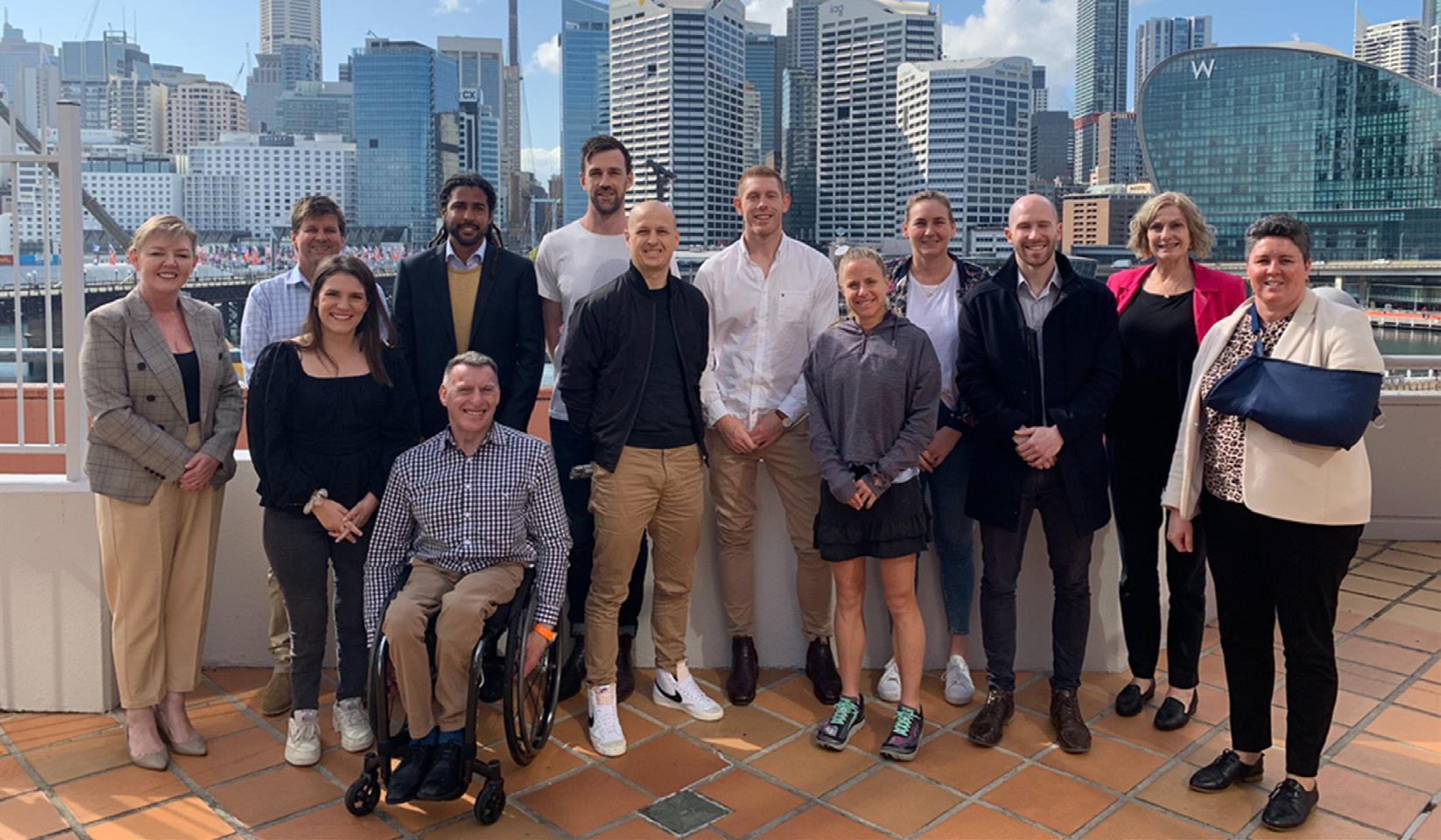
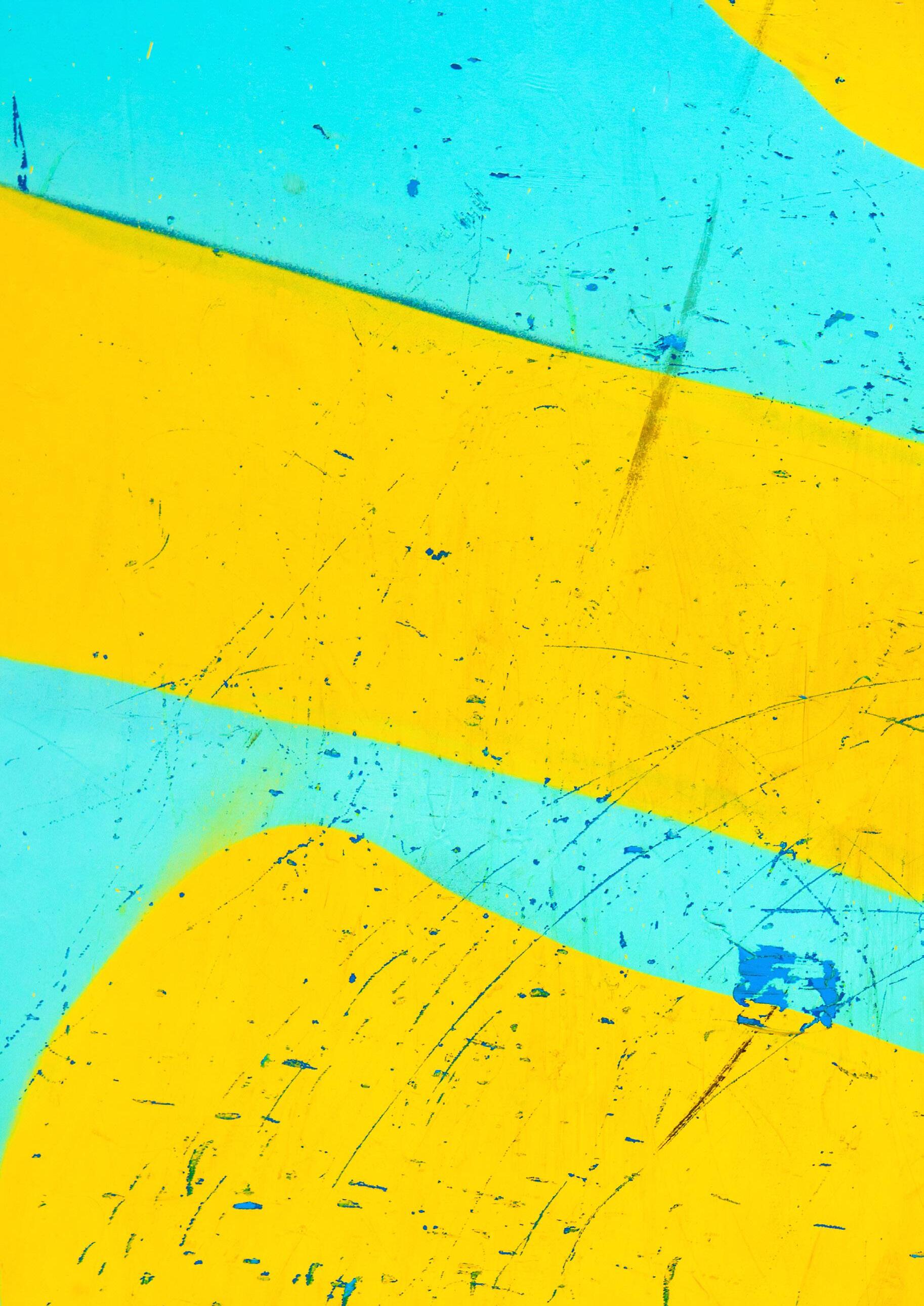
Fundamental and positive change is seldom easy, however the collaborative work between Sport Integrity Australia and the Athlete Advisory Group (AAG) has seen many sustainable changes come into effect.
Bronwen Knox, who is also deputy chef de mission for the Paris Olympics, reflects on her own experience as an athlete and compares it to current day processes that have been aided by Sport Integrity Australia and the AAG.
“When I first became an athlete, the first time I was exposed to anti-doping was when I was being tested,” Bronwen says.
“So having that education piece flow through and having the testing process really out there and known, along with everything else that's now under Sport Integrity’s umbrella, I think athletes now feel a lot more priority in that space and that’s really important to me − making sure that athletes aren't feeling uncomfortable, under pressure or taken advantage of.
“Athletes are now more aware. They may not know the answer, but they know where to find the answer.”
The AAG promotes real and practical change in part by relying on the expertise and insight of experienced athletes like Bronwen.
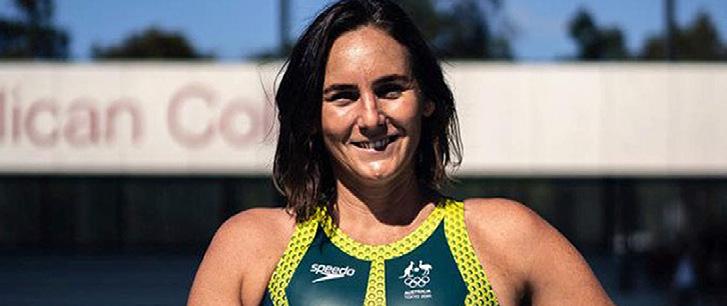
Bronwen KNox four-time olympian “
I think it’s great to see that it's not just the future focus, it's also what can we do right now to help athletes feel more safe and secure to compete in a fair and clean way.
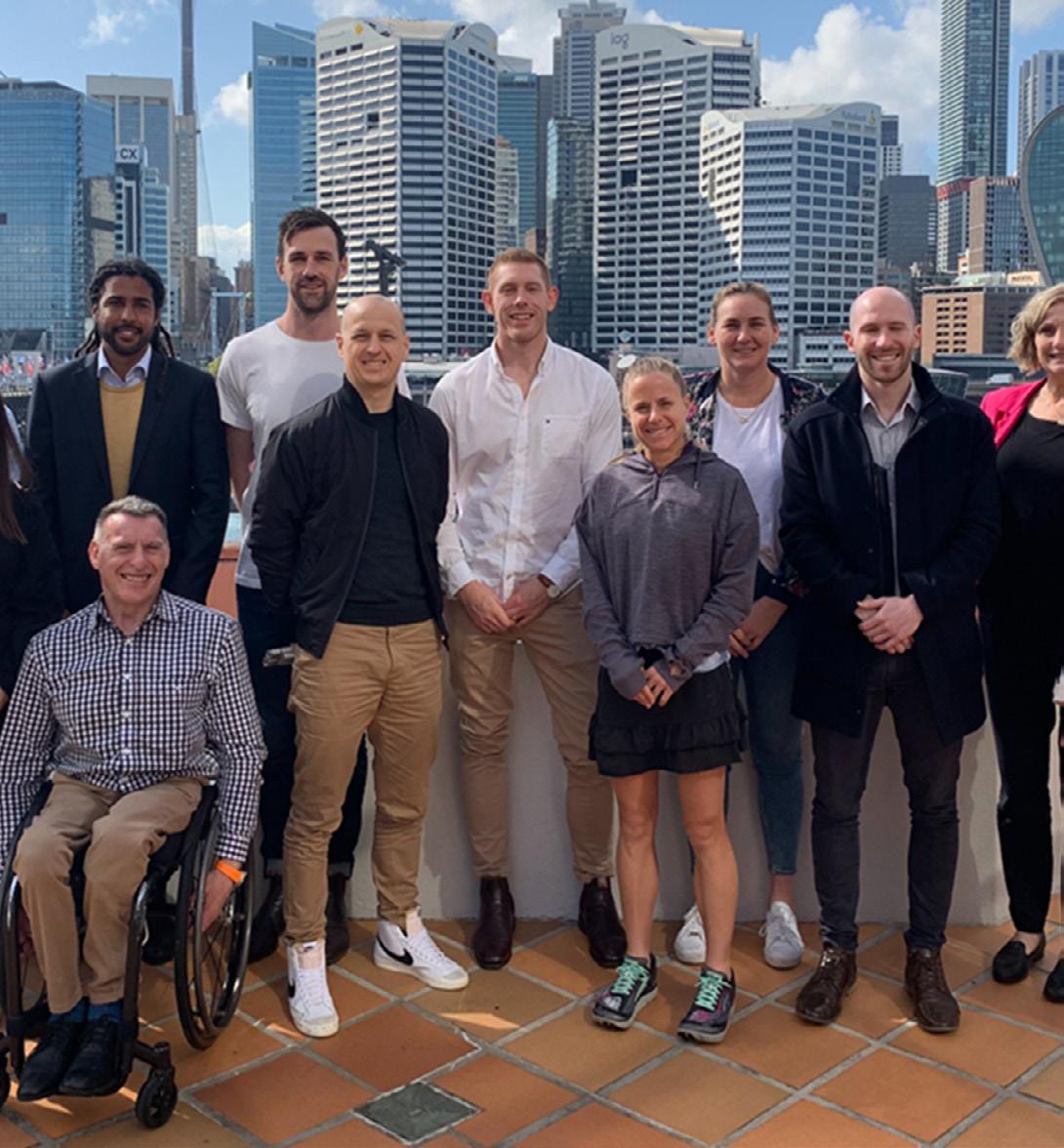
Moving from the role of established athlete to AAG member, Bronwen explains how her perspective has shifted and how the group is able to shape change in sport.
“It's been great to hear from different divisions of Sport Integrity Australia, the challenges they're addressing and the opportunities they see for change and being able to put an athlete lens on it and provide feedback directly to those who are looking to implement change in sport,” she says.
“One of the most interesting discussions we had was around the addition of Tramadol on to the World Anti-Doping Prohibited List and whether it should have a one or a two-year lead in.
“For me, I was very black and white on that but other members of the AAG drew attention to important considerations, such as varying selection periods across different sports and competitions.
“I've also seen some really, really positive outcomes, for example we now have plasma donations allowed whereas previously they were prohibited due to the method.
“Similarly, with the education courses we are asked to provide athlete feedback before they are published.”
Each of these changes have athlete needs and fairness at their forefront with thanks to the work of the AAG.
Being a modern-day athlete requires major oversight and discipline on the athlete’s part but an additional layer of complexity which many athletes will face within their careers is the process of international anti-doping tests.
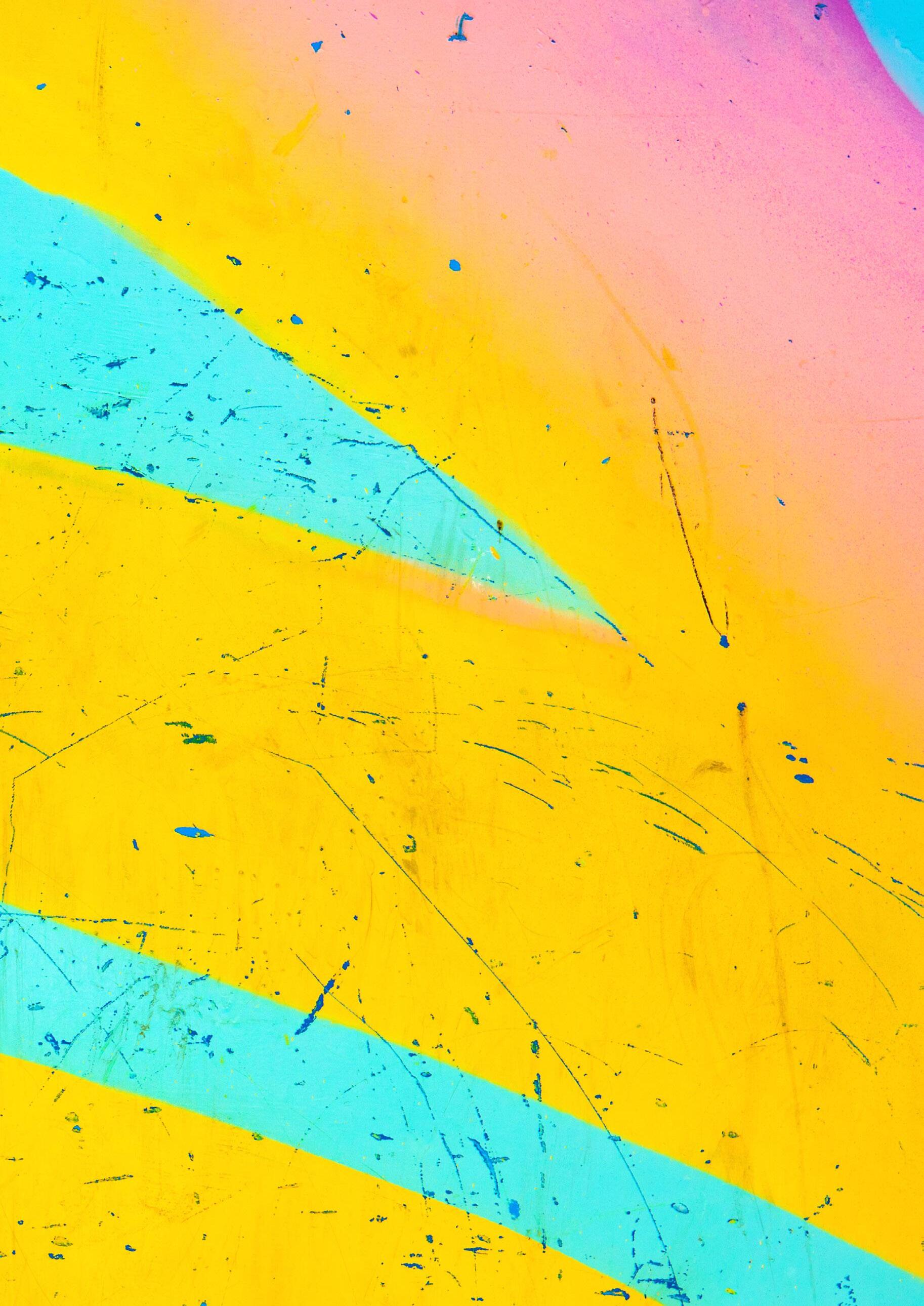
While the processes in Australia might be clear and regimented, factors such as cultural or language barriers can make these already confronting processes even more so when conducted overseas.
Bronwen says that the work of the AAG has had real time and immediate remedial effects on such issues.
“I've had teammates who've had not great experiences overseas with their anti-doping tests who have reached out to me,” Bronwen says.
“Through Sport Integrity Australia I’ve been able to direct their issue down the right channel to not only be addressed but for substantial changes to be made to the process. And while they were still overseas, I was able to provide the athlete with feedback that the issue had been resolved and they helped create positive change.
“I think it’s great to see that it's not just the future focus, it's also what can we do right now to help athletes feel more safe and secure to compete in a fair and clean way.”
As a collective of athletes from varied backgrounds and physical abilities, the AAG represents the greater Australian athlete community.
This collaborative effort ensures the interests of athletes are taken into account on major issues or changes and allows athletes to contribute to the betterment of their sporting environment.
“Being part of the AAG allows athletes to be more community conscious, they can feel like they're giving back to their communities in multiple ways, not just within an athletic performance,” Bronwen says.
The Athlete Advisory Group will next meet in June 2024.
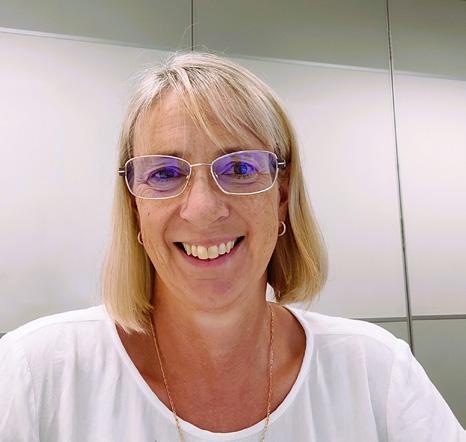
New National Sports Tribunal CEO Michelle Gallen aims to set the benchmark globally.
Taking stewardship of the National Sports Tribunal (NST) in September 2023, CEO Michelle Gallen has grand plans to establish the dispute resolution body as an internationally recognised leader in the space.
“I’d love to see the NST become a globally recognised benchmark for national sports dispute resolution,” Michelle says.
Holding a PhD in international sports law, the former President of Swimming Australia is no stranger to leadership roles, having served as a senior executive within the Queensland Government for seven years.
Her professional background includes roles with the Australian Sports Commission, Melbourne and Olympic Parks Trust and the Australian Sports Anti-Doping Authority. She has been a member of the Australian Anti-Doping Rule Violation Committee, the World Aquatics Masters Technical Committee, Chair of Selectors, a Director of Triathlon Australia and Chair of the ACT Minister’s Sport and Recreation Advisory Council.
Michelle says that this experience has primed her for the new challenges that lay ahead.
“Every leadership role has given me opportunity to grow and learn – sometimes more easily than others,” she says.
“Being President of Swimming Australia was an enormous honour but also really hard work – steering such a high-profile sport with such diversity of stakeholders honed a whole bunch of skills around engagement, media, crisis management and governance,” she adds.
“Bringing that experience to the NST helps me really understand what our sporting bodies are going through at times they might have a case before the Tribunal. My roles within various public sector agencies also help me to negotiate the legislative and government framework that surrounds the NST.
“Sometimes it feels like I’ve been preparing for this role for years without knowing it!”
As a former professional swimmer herself, Michelle says she can relate to the sacrifices and commitments that need to be made to perform at a high level.
“Swimming was my first love and I was privileged enough to represent Australia internationally at a few events. My specialty was 1500m freestyle, so I got used to working very hard and definitely relied on my ability to push myself more than any innate talent,” she says.
Michelle says she uses that same degree of discipline and commitment to integrity in her professional endeavours today.
“My passion for sport integrity comes out of my days as a swimmer. I would have liked to achieve more, but I also believed that the way I won or lost was as important as the result.
“I was fortunate enough to believe that whatever I could accomplish through my own work would be good enough –
I think that came from my family and friends who never let my results define me.
“Nowadays I wish that type of experience for every athlete, and I want to play my part in making that possible for them. I also want to help make sport a safe, welcoming environment no matter who or where you are.”
This call for tolerance, fairness and inclusivity is echoed in the growing objectives of the NST’s service offerings under the guidance of its new leadership.
“First and foremost, I want to ensure we keep offering a very high quality, efficient and independent service for athletes and sports,” Michelle says.
“In this regard, the NST is focusing on continuous improvement, evolving all the time. I would like to explore opportunities for international and regional engagement, potentially supporting some of our Oceanic neighbours and providing services to international events within Australia.”
These expansive initiatives are well situated to help address some of the greatest integrity threats facing sport. Michelle believes that while best efforts are being made to counteract poor behaviours in sport, she says there’s more to be known and done to prevent behaviours becoming cultures.
“I definitely think that gambling and match-fixing are underrepresented in the media compared to the impact they are having on sport (including the influence they have on doping),” she says.
“I personally think that one of the greatest, unrecognised threats to sport integrity is poor governance within sporting organisations. This leads to poor organisational culture which in turn can promote negative conduct and become a vicious cycle.”
She explains that while the NST performs in a regulatory capacity, their approach is personable and considerate of athlete circumstances and needs and offers various assistance for athletes, if needed.
“The NST has lots of different tools to ensure that we are accessible and transparent. We ensure that Tribunal Members are completely independent with very strong conflict of interest procedures,” Michelle says.
“We provide extra support for vulnerable persons and others who may need it and take financial hardship into consideration in charging fees. Having said all that, not everyone who comes before the NST will necessarily have a positive experience (by our very nature), but our aim is that it won’t be due to problems with accessibility or our procedures.”
The NST is an independent dispute and appeals resolution body that handles matters relating to anti-doping rule violations, disciplinary decisions, selection and eligibility and bullying, harassment and discrimination.
Earlier this year, Sport Integrity Australia launched a new webinar series designed to make our education program more accessible.
Since the first webinar in February, more than 1,100 people have participated, with feedback consistently showing the value of each session.
Topics included Photography, Videos and Electronic Communication with Children and Young People; Recognising Boundaries and Managing Behaviours of Children and Young People; and Transporting and Travelling with Children and Young People.
Attendees have largely been from the community sport level (65% of attendees’ primary involvement in sport is at club/grassroots level) with the largest percentage being administrators, followed by coaches, parents and athletes/participants.
Key feedback from attendees includes:
“The most valuable thing was the examples of how sports have made child safety a priority and communicated these messages to members.”
“Thoroughly enjoyed the segment on how to teach members to use social media in a safe way. Will be implementing this training and education!”
“That we don't have to reinvent the wheel as there are a lot of resources available. Your resources look great.”
The first three webinars have focused on bringing the Child Safe Practices to life, and a fourth is being held next month to address grooming in the sporting environment, featuring Forensic Psychologist Dr Karla Lopez. Dr Lopez will be speaking about her experience working with child sex offenders and what we can all learn about how offences against children can happen in sport, and what we can do to prevent it.
All recordings are made available on the Sport Integrity Australia website following the presentation, but attending online gives participants the chance to ask questions relevant to their own experience.
“These webinars are a critical part of our strategy to reach more participants in sport, particularly at the community and grassroots level. We’ve been buoyed by the sector’s response and enthusiasm to these sessions and eagerly accept all feedback on future session ideas, topics or ways they can be improved,” Director of Education Alexis Cooper said.
“We know that great education programs can have a huge impact on changing cultures and protecting participants, but it only works when we work in partnership with sports. It’s great to see so many clubs and NSOs actively involved so far, and I’m hopeful that commitment and enthusiasm to protect and prevent continues.”
Future webinar topics will be announced shortly, and will focus on helping sports understand how to manage complaints, including advice on appropriate and proportionate sanctioning. If you have ideas for future topics, you can submit them by emailing education@sportintegrity.gov.au.
Next webinar is on Thursday 11 April: Understanding Grooming in Sport.
For more information head to the Sport Integrity Australia website
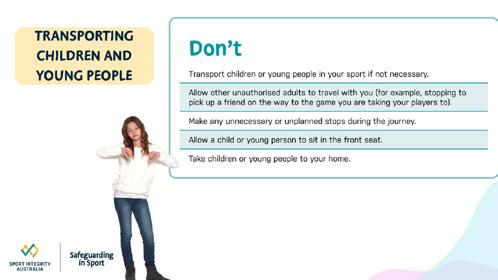
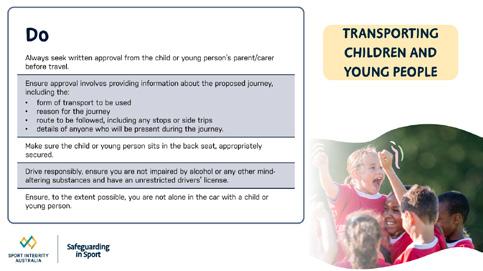

The World Anti-Doping Code is the core document upon which the global anti-doping program in sport is based. In September 2023 the World Anti-Doping Agency launched the 2027 World Anti-Doping Code and International Standards Update Process.
The first stakeholder engagement phase is now complete with Sport Integrity Australia undertaking extensive stakeholder engagement which included our Advisory Council, the Australian Sports Drug Medical Advisory Committee, our Athlete Advisory Group, the National Sports Tribunal, National Sporting Organisations, Major Games, the Australian Sports Drug Testing Laboratory, the Australian Sports Commission and other key National Anti-Doping Organisations. Sport Integrity Australia staff also attended international meetings to engage with our overseas counterparts on the process.
Chris Butler, Sport Integrity Australia’s Director of Anti-Doping Policy and International Engagement, said the Australian responses have been well-informed through comprehensive stakeholder engagement leveraging an exceptional Australian knowledge base.
“We are now in the First Drafting Phase which sees the WADA Drafting Teams integrate and review stakeholder feedback, and will then head into the Stakeholder Consultation Phase mid-year where we’ll have the opportunity to provide feedback on the initial drafts," he said.
“Our continued involvement during these phases plays a vital role in shaping the updated Code and International Standards to help protect sport globally.”
Sport Integrity Australia’s responses to each concept paper is available on our website.

Australia is leading in many areas in the sport integrity space internationally. A multitude of collaborations means we’re not only sharing our knowledge and contributing positively, but we’re also continuing to learn and improve as we develop our approaches in partnership with others for the integrity of sport globally.
Staff from Sport Integrity Australia recently played a key role at the Global Education Conference in Paris, the 25th World Anti-Doping Agency (WADA) Symposium, WADA Executive meetings and participated in multiple high level integrity related meetings.
We’ve led discussions with global partners about the threats of EPO doping and the uplift of science and laboratory capability and co-hosted a high level multi-country meeting to establish a standing global network of country heads designed to share experiences and learnings on integrity threats impacting world sport.
Representatives of the agency also attended the Institute of National Anti-Doping Organisations (iNADO) Annual General Meeting to vote on the next board (on which Australia earned a spot), delivered a keynote speech at the 25th Symposium outlining the benefits of anti-doping education and held discussions around proposed Code changes specific to EPO and Substances of Abuse.
Our role in educating the Australian Olympic and Paralympic teams heading into Paris is another key collaboration that impacts the international space, along with our work with Games partners to embed integrity within major events planning and sport program delivery.
Sport Integrity Australia was represented at WADA's Global Education Conference in Cannes, France during February. Bringing together more than 350 researchers, anti-doping practitioners, government officials and educators, the conference looked at how we can continue international collaborative efforts to protect sport through education.
With the largest number of registrants to date, WADA Education Committee Chair Kady Kanoute welcomed participants by stressing how imperative education is in reducing the risks of unintentional doping and helping athletes to prepare for major events with confidence.
“Lack of information and awareness can lead to unintentional violations of anti-doping rules, sometimes with serious consequences for athletes' careers,” she said. “The Global Education Conference is an opportunity to reiterate the commitment to anti-doping based equally on education and deterrence."
Sport Integrity Australia's Director of Education Alexis Cooper and Assistant Director Education Resources Shelly Chard attended the conference to ensure Australia remains at the forefront in education.
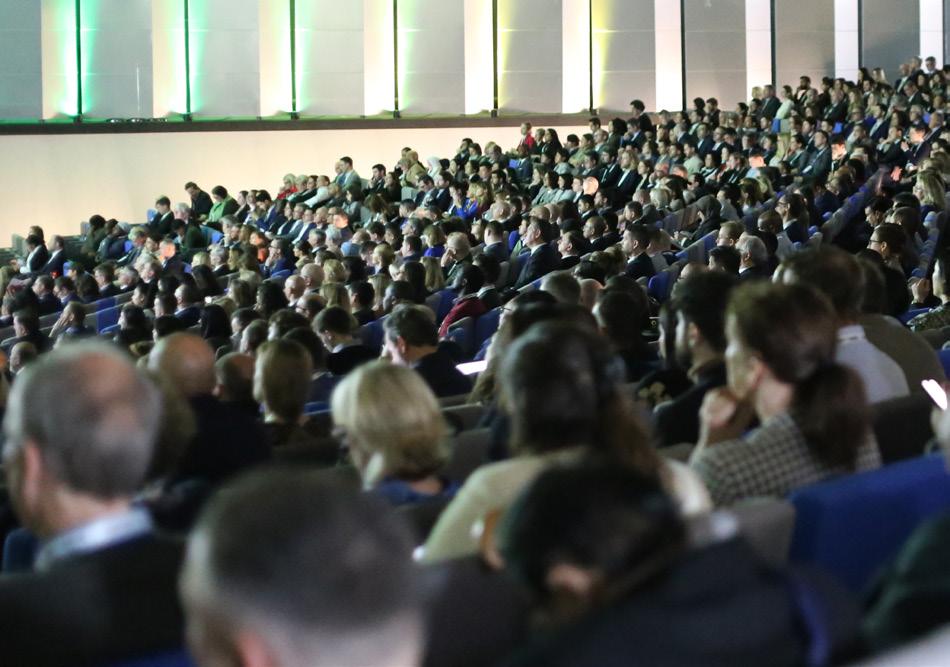
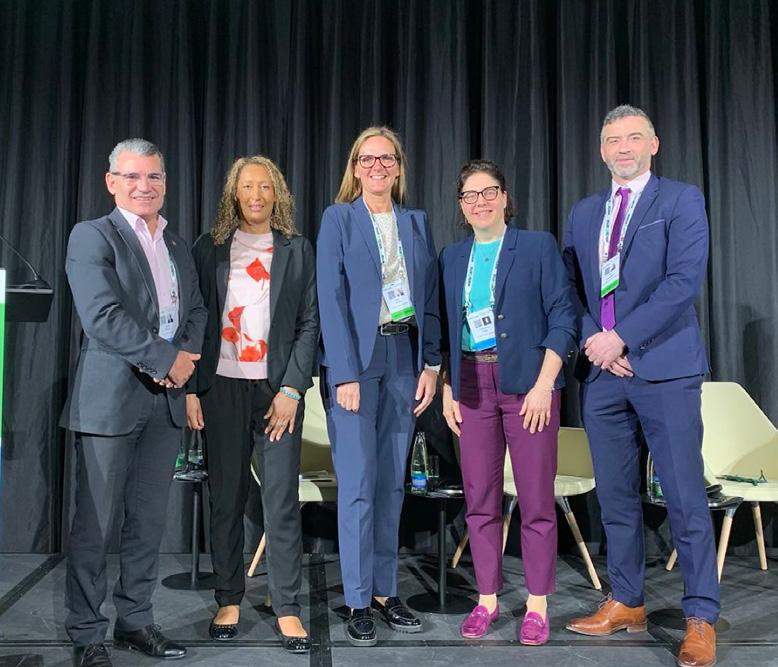
"Throughout the conference, there were multiple references to Australia's success in reducing the number of positive tests caused by supplements to zero, including by WADA's Director General Olivier Niggli in his closing address," Ms Cooper said. "There are many other countries taking a similar approach to ours, noting the important role that every athlete, support team, coach and administrator has in keeping sport fair and free from doping.
“In particular, the Conference agenda focused on the need to rebalance the anti-doping system from 'catch and punish' to 'prevent and support'. Our work with sports to deliver education programs to their participants is crucial to this.
"The conference was also an opportunity to discuss potential changes to the International Standard for Education. This includes proposals around expanding mandatory education to athlete support personnel and to any minor competing in international events. We will engage the Australian sporting community more throughout 2024 to discuss these proposals."
Ms Cooper was actively involved in several key sessions, including leading a "Regional Conversation" session with anti-doping practitioners from across the Asia−Oceania region and presented at the Emphasize to Understand session about the importance of engaging with athletes to design education programs. She also moderated the Using behavioural science to promote clean sport values and behaviours session with learning design expert Julie Dirksen and supported a session on Nutritional Supplements and Inadvertent doping
Ms Cooper was also recently appointed a member of the WADA Education Committee, who met prior to the Conference to discuss the direction of the global clean sport education agenda. The Education Committee also met with the Social Science Research Expert Working Group, which includes the University of Canberra's Professor Catherine Ordway.
"Participation in these events gives Australia a seat at the table to influence the direction of WADA's global education strategy, including the new focus on unintentional doping. It's also an opportunity for us to build partnerships with
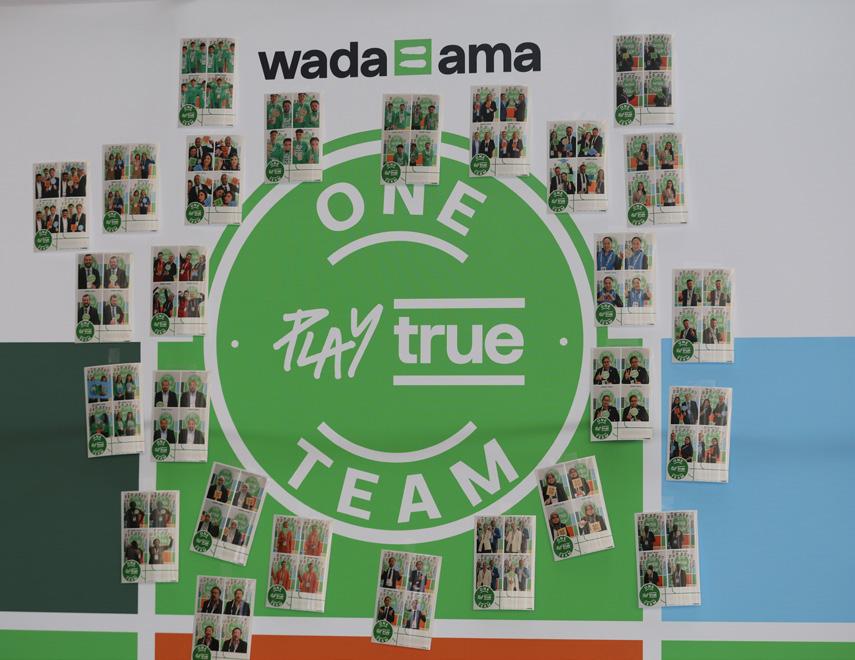
other anti-doping organisations who we learn from and work with to improve what we can deliver for sports here in Australia. There are several new ideas stemming from the conference that I am excited to incorporate this year!"
A review of the trip was provided to Sport Integrity Australia's Sport Sector Advisory Group on Education in March.
Australia continues to engage with the international law enforcement community through meetings and attendance at conferences to discuss and collaborate on issues of transnational crime. This helps Australian sport by emphasising the importance of maintaining the reputation for fair and safe sport.
Sport Integrity Australia's Director of Sports Wagering and Competition Manipulation, Jason Whybrow attended the 10th Conference of the States Parties (COSP) which is the main policy-making body of the United Nations Convention against Corruption. His attendance meant Australia was privy to the implementation of the Convention on technical assistance, prevention and discussion around the challenges and measures to prevent and combat corruption and strengthen international cooperation.
He was also a panellist at two Special Events hosted by the United Nations Office on Drugs and Crime Safeguarding Sport from Corruption program and the INTERPOL Financial Crime and Anti-Corruption Centre.
Additionally, we were involved in several bilateral meetings with anti-corruption and government representatives that are very interested in the approach to sport in Australia. “Maintaining our engagement with the international law enforcement community in this way is valuable as it gives us a fuller understanding of corruption internationally, the nuances and connections between sport and crime and allows us to create solid networks to remain ahead of the game from a sport integrity standpoint,” he explained.
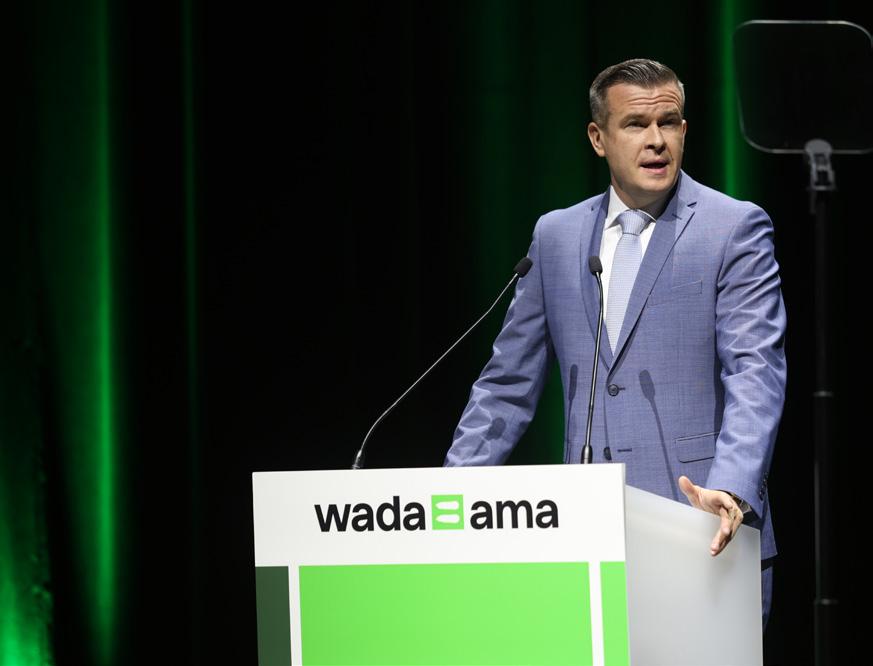
Networking with our international counterparts is a large part of how we continue our global approach to protecting sport.
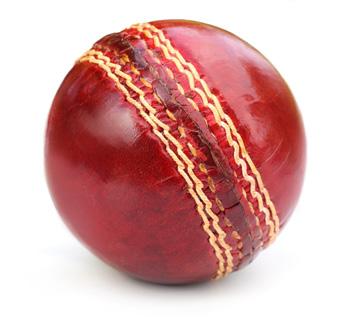
Six months ago members of Sport Integrity Australia were speaking at a Safe Sport International Conference in London on Safeguarding, where members of the England and Wales Cricket Board (ECB) were in attendance. Hearing the Australian perspective resonated with them and the work they were doing in cricket. So much so they wanted to formalise the sharing of information and knowledge via an official visit to the Sport Integrity Australia offices in Canberra.
“Off the back of a very public report of extensive racism that a professional player experienced over a period of time in our sport, there was a public review of Cricket, and a report handed down 144 recommendations to address the issues,” ECB Director of Anti-Discrimination and Safeguarding Sara Niblock explained.
“Effectively, we are trying to ensure there is a consistent response to all integrity threats across all levels of the sport and felt that the work done at Sport Integrity Australia could be applied in the UK Cricket context.
“Our discussions with the Safeguarding team in Australia, the visit to the Sport Integrity Australia office and the many discussions we had across sports in the Southern Hemisphere allowed us to get a feel for how different sports are influencing positive behaviours in their own unique contexts.”
Assistant Director of Safeguarding Emma Gardner said the visit is testament to the great reputation and work that we are building internationally.
“It was a fantastic opportunity to share our achievements, lessons learned and acknowledge the synergies between the Australian sporting landscape with our cousins across the pond,” she said.
“We have been able to introduce our cricket colleagues to a number of stakeholders that will be able to inform and support their important work moving into the future.”
The Australian trip included visiting a few of our sporting partners including Sports and Players Associations, AFL, Cricket, Rugby, the National Sports Tribunal, Australian Sports Commission and the Australian Institute of Sport. The trip not only helped ECB plan their next steps but also expanded the knowledge and understanding of Sport Integrity Australia staff.
The 2024 Annual WADA Symposium was held 12−13 March in Lausanne, Switzerland with almost 1,100 delegates from the global anti-doping community in attendance. Under the theme “One Mission – One Team” the program highlighted how countries worldwide are collaborating on their mission for doping-free sport and thus raising the game for athletes everywhere.
Key Sport Integrity Australia Executive attended the Symposium including CEO David Sharpe who presented on education and advancing global policy while enriching regional delivery. He joined education experts from each of WADA’s regions who presented on their anti-doping education policies and programs since the launch of the International Standard for Education (ISE) in 2021. He then helped to facilitate discussions on the emerging themes from the ISE and Code update process.
Mr Sharpe said education creates culture and this can be done from the day a child enters sport.
“Investing in creating a positive culture will prevent the need to change a poor culture down the track," he said.
“Our goal is to keep athletes in sport, not to remove them. Education is central to this, and all leaders must invest in education.”
In his opening address, WADA President Witold Bańka celebrated the agency’s 25h anniversary and highlighted just some of what’s been achieved by the global anti-doping community since WADA was founded in 1999.
“It has been a quarter century of progress, of growth and, above all, of collaboration with the global anti-doping community,” he said. “The agency’s very origins are the result of a unique partnership between sports and governments of the world. Remarkably, it is a partnership that has stood the test of time. I am not aware of any other socio-political scenario where this has happened.” With more than 60 law enforcement officers in the room from 31 European countries, the program included a key session on the collaboration between National Anti-Doping Organisations (NADOs) and law enforcement agencies to reduce doping in sport and maximise the health benefits of young people.
“By combining the power of arrest and seizure of law enforcement agencies with the specific anti-doping knowledge of Anti-Doping Organisations, we have achieved unprecedented results,” Mr Bańka said. “It is fair to say that the criminal gangs that are trafficking performanceenhancing drugs and their customers who wish to cheat the system are feeling the heat.”
The Symposium program also covered capability and capacity building, benchmarking, trends and perspectives, various expert sessions, operational issues, science, human rights, key partnerships and provided an opportunity for important international networking.
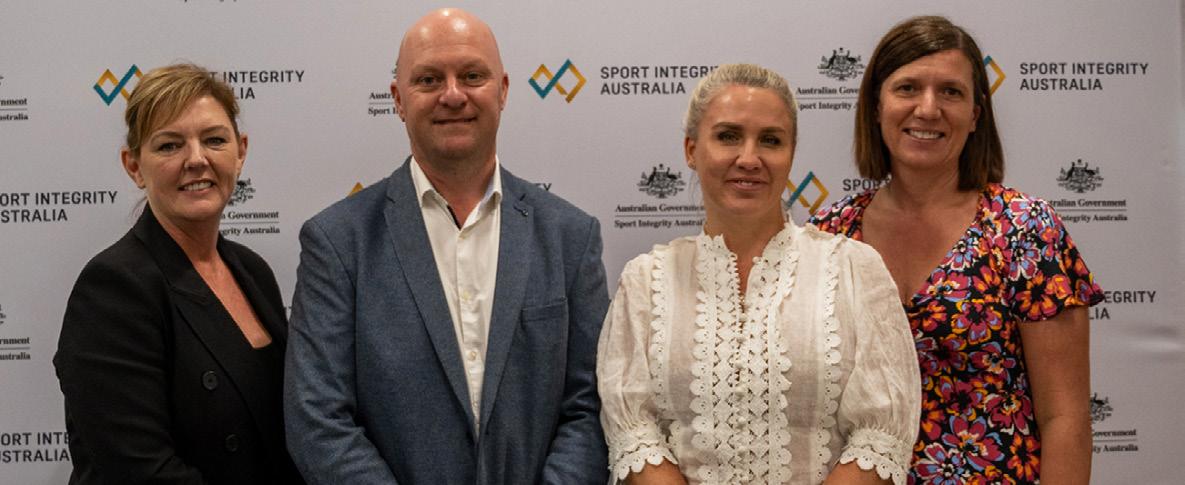
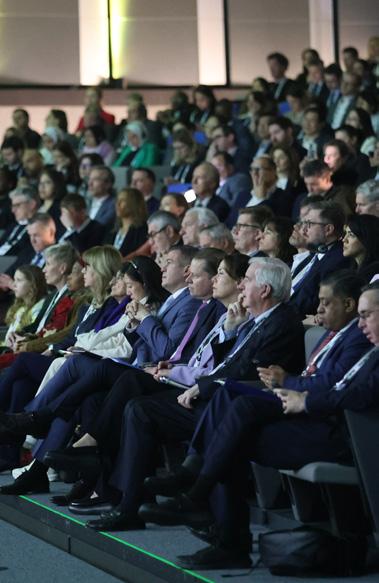
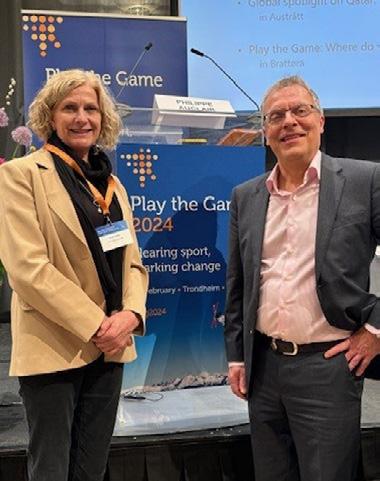
Our Director of Safeguarding Lisa Purves, Marcus Puddephat (ECB Head of Anti-Discrimination & Recreational Cricket Discipline), our Assistant Director of Safeguarding Emma Gardner and Sara Niblock (ECB Director of Anti-Discrimination and Safeguarding) during a visit to the Canberra office
Sport Integrity Australia's Director of Sports Wagering and Competition Manipulation Jason Whybrow at the 10th Conference of the States Parties in France
Our Director of Education Alexis Cooper in Malta with the CEO of the Authority for Integrity in Maltese Sport Luciano Busuttil, their Head of International Relations Ryan Borg and the Australian High Commissioner of Malta His Excellency Matt Skelly
Alexis Cooper (front row, far right) and other members of the WADA Education Committee
The Australian contingent at the WADA Education Conference (from left) Scott McLean (University of Sunshine Coast), Rida Ahmed (IOC’s Competition Manipulation Prevention team), Alexis Cooper (Sport Integrity Australia), Shelly Chard (Sport Integrity Australia), Paul Salmon (University of Sunshine Coast) and Catherine Ordway (University of Canberra)
Sport Integrity Australia’s Deputy CEO Dr Sarah Benson (second from right) was elected to the Board of the Institute of National Anti-Doping Organisations
Our Director of Sport
2024 Annual WADA
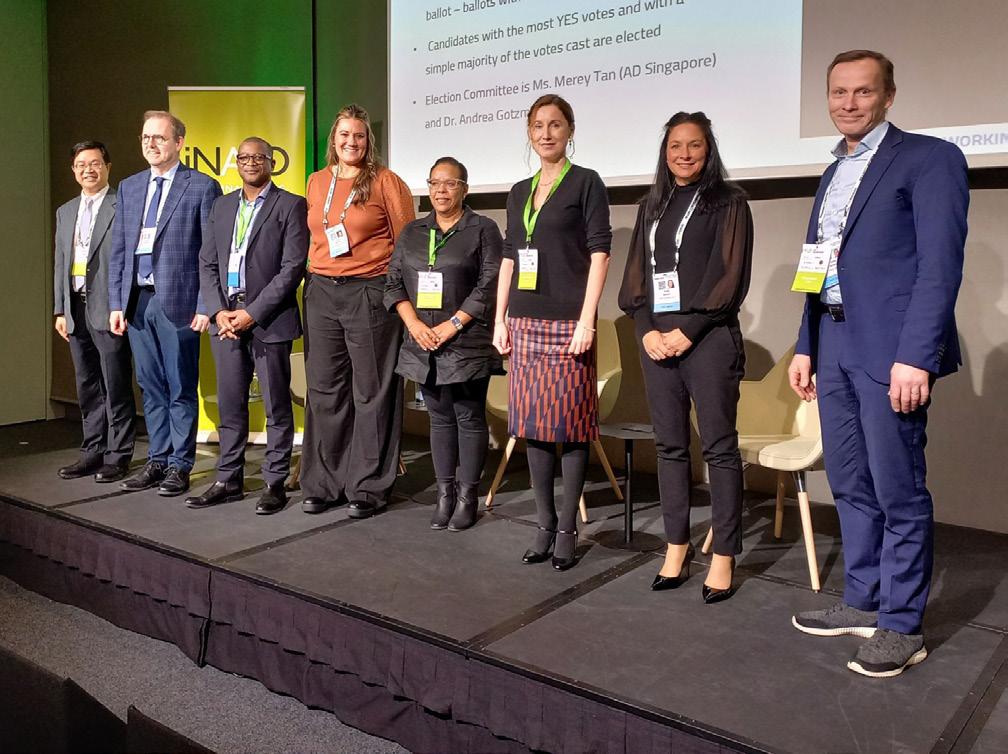

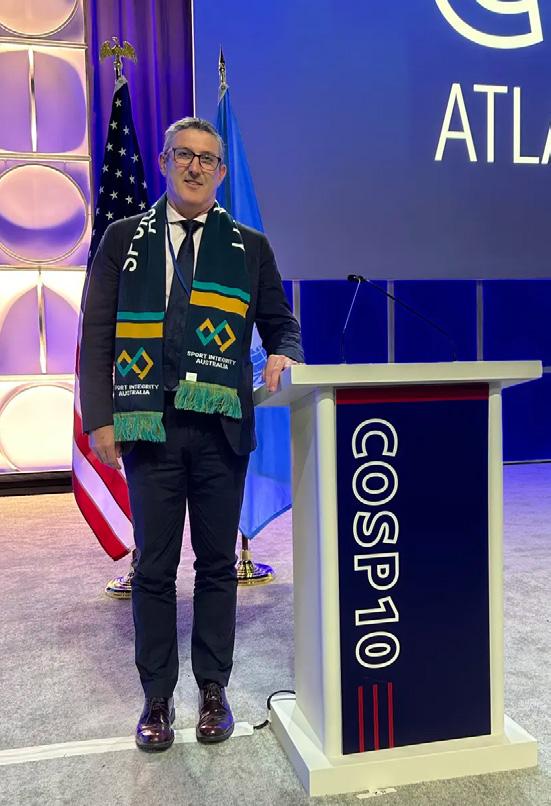
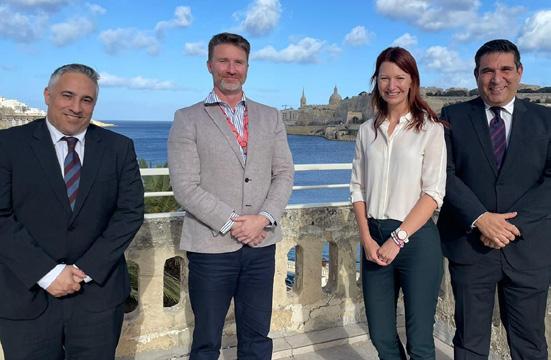
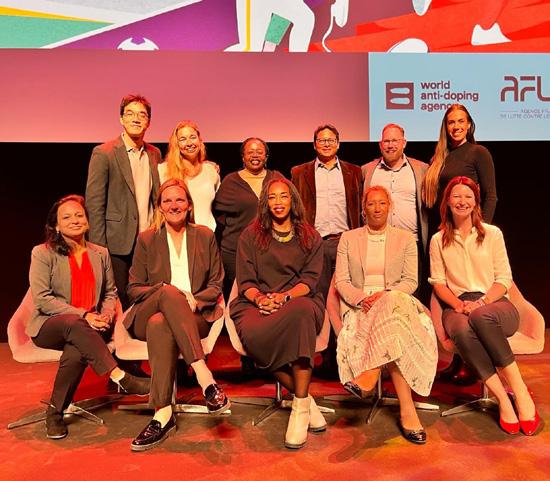
 Clockwise from top left:
Partnerships Linda Muir at the 2024 Play the Game conference in Trondheim, Norway, with Jens Sejer Andersen, PTG International Director.
Clockwise from top left:
Partnerships Linda Muir at the 2024 Play the Game conference in Trondheim, Norway, with Jens Sejer Andersen, PTG International Director.
Around the edges of the Symposium, Sport Integrity Australia staff met with key integrity counterparts in various sports, with relevant WADA and NADO colleagues, and attended the Institute of National Anti-Doping Organisations (iNADO) Annual General Assembly and annual iNADO Workshop where this year’s theme was “Embracing Diversity in Anti-Doping Practice”. We also had attendance at the WADA Executive meeting and Onevoice meetings which facilitates input and representation at WADA Executive Committee and Foundation Board meetings. These additional meetings help us to learn and exchange ideas and practices to further enhance the common purpose of working towards excellence in anti-doping globally.
Linda Muir, our Director of Sport Partnerships attended the Play the Game Conference in Norway where academics, journalists and other sports stakeholders came together to discuss governance, corruption, sportswashing, abuse and violence, activism, racism, human rights and a whole lot more.
Play the Game is an initiative promoting democracy, transparency and freedom of expression in world sport with their 2024 Conference focusing on “clearing sport, sparking change.”
Mrs Muir said: “We’ve all got a role to play in keeping sport safe and fair for everyone, and it’s important we continue to work and network globally to not only identify the threats but to learn, grow and improve as an international collective.”
Sport Integrity Australia’s Deputy CEO Dr Sarah Benson was elected to the Board of iNADO representing the Oceania region on the global stage to promote best practice and strategic leadership in anti-doping practices.
CEO David Sharpe said “this was a significant appointment for Australia, for Sport Integrity Australia and for Dr Benson personally, and recognises the expertise, professionalism and leadership Dr Benson brings to the global anti-doping stage.”
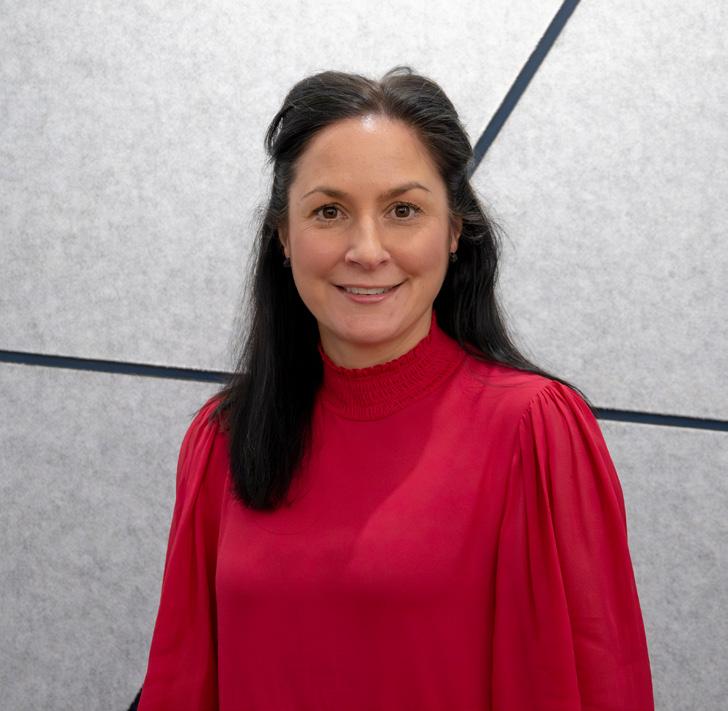
Sport Integrity Australia would like to congratulate our Safety and Culture Advisor, Patrick Johnson, who was awarded the 2023 IOC Gender Equality, Diversity and Inclusion Champions Award for Oceania.
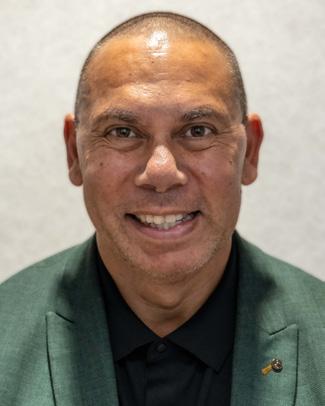
The award is in recognition of Mr Johnson’s 20-plus years of advocacy work for equal rights and inclusion for all Australians in sport, in addition to various indigenous leadership roles.
A proud indigenous Olympian, he joined our agency in 2023 to help us address discrimination, abuse and mistreatment across all levels of Australian sport and ensure Sport Integrity Australia's work in this space is appropriate and informed.
Sport Integrity Australia CEO David Sharpe said Mr Johnson's advocacy and contribution to sport was far-reaching.
“This award acknowledges Patrick’s commitment, through his many roles in sport, to a sporting environment that is culturally safe, where Indigenous Australians feel included, recognised and safe,” Mr Sharpe said. “We look forward to working with Patrick to embed culturally safe practices in our agency and for everyone in sport.”
In addition to his role at Sport Integrity Australia, Mr Johnson is also the Chair of the Australian Olympic Committee’s Indigenous Advisory Committee, a Brisbane 2032 Olympic and Paralympic Games Organising Committee Board Member, and an Indigenous Advisor for Australia’s High Performance 2032+ Sport Strategy.
Former professional tennis player and now tennis executive, Katrina Adams, was the Global Winner of the award, with other continental winners including: Africas: Irene Limika (Kenya); Americas: Marialoreto González Jaque (Chile); Asia: Jayanthi Kuru-Utumpala (Sri Lanka), and Europe: Aurélie Bresson (France).
Sport Integrity Australia staff member
WADA FORUM
WADA Exective Committee (Foundation Board from 2024)
Minister for Sport (Deputy – Darren Mullaly)
WADA Executive Committee (independent member) Venetia Bennett
WADA TUE Expert Advisory Group (Chair)
WADA Health, Medical and Research Committee
WADA Nominations Committee (Chair)
Dr Susan White
Prof. Andrew McLachlan
Diane Smith-Gander
WADA Prohibited List Expert Advisory Group Prof. David Handelsman
WADA Social Science Research Expert Advisory Group (Chair) Dr Catherine Ordway
WADA Laboratory Expert Advisory Group Dr Naomi Speers
WADA Finance and Administration Committee Rebecca Tyler
WADA Education Committee Alexis Cooper
WADA Compliance Review Committee (athlete member)
Dr Renae Domaschenz
WADA Athlete Council Ella Sabljak
WADA Gene and Cell Doping Expert Advisory Group
Natasha Hamilton
WADA Selection Committee for Continental Results Management Panel Emily Fitton
WADA GLDF working Group on compliance
Chris Butler
WADA GLDF Trainer Group Alexis Cooper
WADA GLDF Trainer Group

Steve Northey
WADA Endocrine Working Group (Chair) Prof Ken Ho
WADA Haematological Working Group Dr Laura Lewis
WADA Code Drafting team – International Standard for TUE
Global Sport Integrity Network
Anti-doping intelligence and investigations network (ADIIN)
Sports Human Intelligence Network (SHIN)
Council of Europe – Monitoring Group
Council of Europe – Legal Advisory Group
Council of Europe – Scientific Advisory Group
Council of Europe − Group of Copenhagen Bureau (Vice Chair)
IPACS Steering Committee
Centre for Sport and Human Rights (Board member)
iNADO (institute of National Anti-Doping Organisations)
International Safeguarding Children in Sport Advisory Board (member)
World Rowing (Council Member)
IOC Athletes Commission
Dr Susan White
David Sharpe
Douglas Stubbs
Douglas Stubbs
Darren Mullaly
Kerry Knowler
Dr Gemma Payne
Darren Mullaly
Jason Whybrow
Nikki Dryden
Dr Sarah Benson
Dr Paul Oliver
Sarah Cook
Jessica Fox

Cleveland Cavaliers centre Tristan Thompson was suspended by the NBA for 25 games. The 2016 NBA champion faced a lengthy spell on the sidelines after he tested positive for Ibutamoren and LGD-4033.
Russian skater Kamila Valieva, who was only 15 when she failed a drugs test ahead of the 2022 Winter Olympics, has been banned for four years. The Court of Arbitration for Sport verdict means that Russia was stripped of its team gold from the Games.
World Cup winner Elton Jantjies has been suspended for four years after being found guilty of using the banned substance Clenbuterol. The flyhalf, now 33, was part of the Springbok squad that lifted the World Cup trophy in 2019.
Former African indoor 800m record holder Michael Saruni has been banned for four years for sending someone to impersonate him during a drug test. He is among 44 athletes, footballers, swimmers and bodybuilders, who were handed bans ranging from one year to life by an Anti-Doping Association of Kenya disciplinary panel, as officials try to combat rampant doping in Kenyan sports.
UK
UK Anti-Doping received 184 reports of suspected doping via its confidential reporting channel in 2023, up from 110 in 2022. The increase in numbers comes following changes to the 2021 World Anti-Doping Code, providing further protection to individuals sharing information on doping in sport.
POLAND
Professional boxer Krzysztof Glowacki has been banned for four years after testing positive for using the anabolic androgenic steroid Boldenone after a fight in Manchester.
KENYA
The Athletics Integrity Unit has handed a four-year ban to 32-year-old Kenyan athlete James Karanja Gikunga after he tested positive for the presence and use of a prohibited substance, namely 19-norandrosterone, 19-noretiocholanolone, and Nandrolone.
UK
Harry Tyson-Wilson has admitted purchasing and being in possession of Dianabol, a prohibited anabolic steroid. Tyson-Wilson had his ban reduced to four years after an early admission of guilt. It will end on 12 April, 2026.
KENYA
Kenyan athlete Sarah Chepchirchir, winner of the 2017 Tokyo Marathon, has been banned for eight years after testing positive for Testosterone. The Athletics Integrity Unit said the 39-yearold tested positive after the Chonburi Marathon in November 2023. She finished second with a time of 2:35:43.
WEIGHTLIFTING UNITED STATES
Weightlifter Katelyn Kirby has been banned for three years after testing positive for and admitting to the use of prohibited substances. Kirby’s Athlete Biological Passport showed abnormal markers which were of synthetic origin.
Canadian Mitch McKay has been handed an 18-month ban by the Canadian Centre for Ethics in Sport after an in-competition sample tested positive for Pseudoephedrine. McKay waived his right to a hearing and accepted the sanction.
TENNIS
ROMANIA
Former world number one Simona Halep has won her appeal against a four-year doping ban after a three-day hearing before the Court of Arbitration for Sport in Switzerland. Halep had been provisionally suspended since October 2022 after testing positive for Roxadustat.
CRICKET UK
UK-based club cricketer Rizwan Javad is one of eight players and officials to be charged with match-fixing by the ICC in September 2023. Rizwan was found guilty of five breaches and sentenced to a 17 ½ year ban.
TENNIS TUNISIA
Tunisian player Anis Ghorbel was banned for three years and fined $20,000 by the International Tennis Integrity Agency for four match-fixing breaches in 2016−2017. He facilitated wagering on the outcomes of matches and contravened the outcome or aspect of a match.
RUGBY UNION AUSTRALIA
World Rugby officials have vowed to track down and punish online trolls who abused referees at last year’s World Cup after a Queensland man became the first alleged perpetrator worldwide to be formally charged under Commonwealth legislation with using a carriage service to menace and harass.
BASKETBALL AUSTRALIA
Former NBL basketball referee and longtime volunteer Nathan Aaron Wieland faced the Adelaide Magistrates Court charged with a raft of child sex offences. SA Police and prosecutors disclosed 800 pages of the former South Australian Referee of the Year’s “chats” with children online.
TENNIS FRANCE
Leny Mitjana is the 13th player sanctioned following a criminal investigation into a match-fixing syndicate in Belgium. He received a 10-year ban for the facilitation of wagering, contriving the outcome of matches, influencing other players not to make their best efforts in matches, and failing to report corrupt approaches.
Following his guilty verdict, former Chinese Football Association boss Chen Xuyuan said match-fixing was rampant within the league. Xuyuan received a “congratulatory” 300,000 yuan from two club officials the night before receiving his CFA appointment in 2019.
A Spanish judge has proposed that former football federation president Luis Rubiales should stand trial over the women's World Cup kiss involving captain Jenni Hermoso. Mr Rubiales kissed Ms Hermoso during the presentation after Spain's victory in Australia. She said the kiss was "not consensual", a statement denied by Mr Rubiales.
A female staff member of Red Bull Racing has appealed the outcome of an investigation into misconduct which cleared team principal Christian Horner. He was accused of controlling and coercive behaviour. The employee remains on suspension with full pay.
The Board of Control for Cricket in India has banned Odisha cricketer Sumit Sharma for two years for committing age fraud deliberately misrepresenting his age.
US swimmer Lia Thomas, who became the first transgender athlete to win a NCAA college title, is taking legal action in a bid to compete again in elite female sport –including the Olympics. Thomas has not swum since World Aquatics introduced new rules in 2022, which prohibit anyone who has undergone “any part of male puberty” from the female category. Before then, transgender women were able to compete if they lowered their testosterone levels.
Lynne Pinches, one of Britain's top female pool players, has turned down a first ever professional contract because she believes transgender women have an unfair competitive advantage. It follows an apparent U-turn by the sport's governing body and main promoters on its transgender policy. "The U-turn was the nail in the coffin for me, I was done then," Pinches said.
